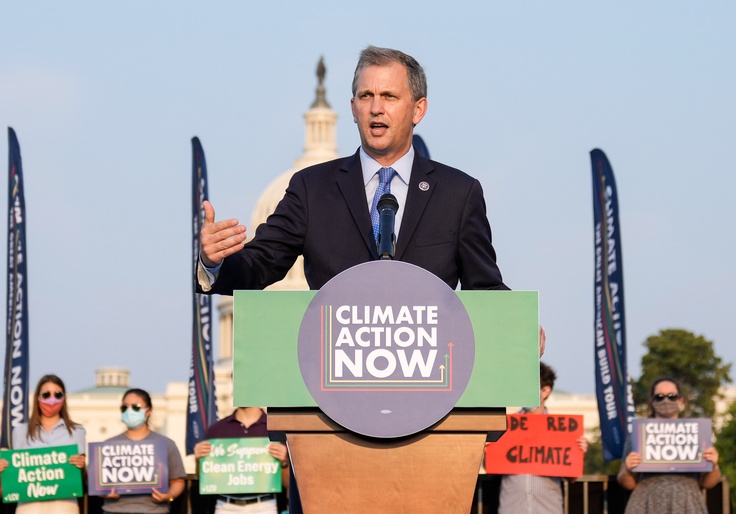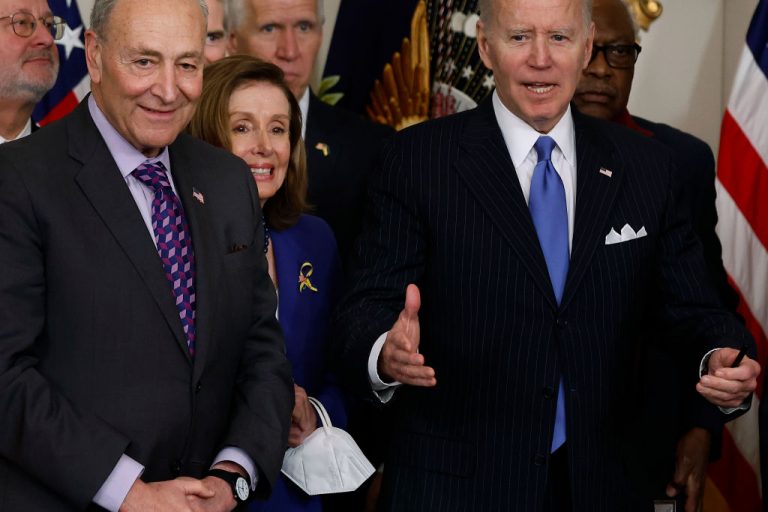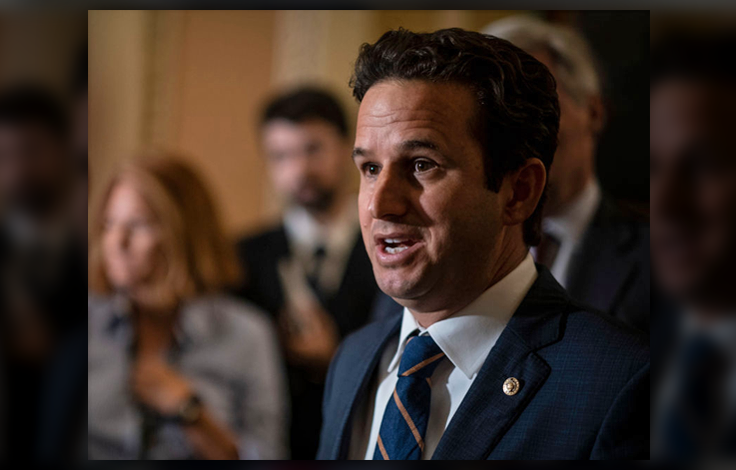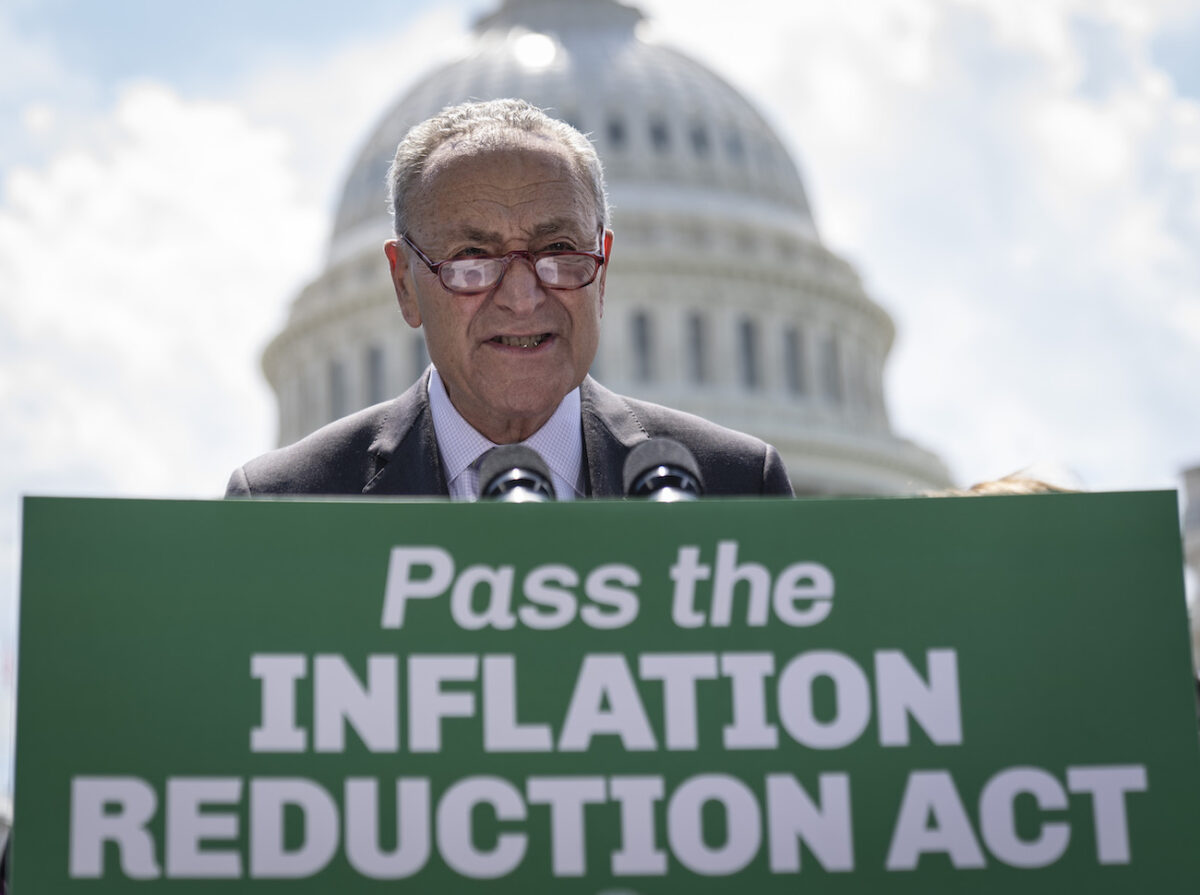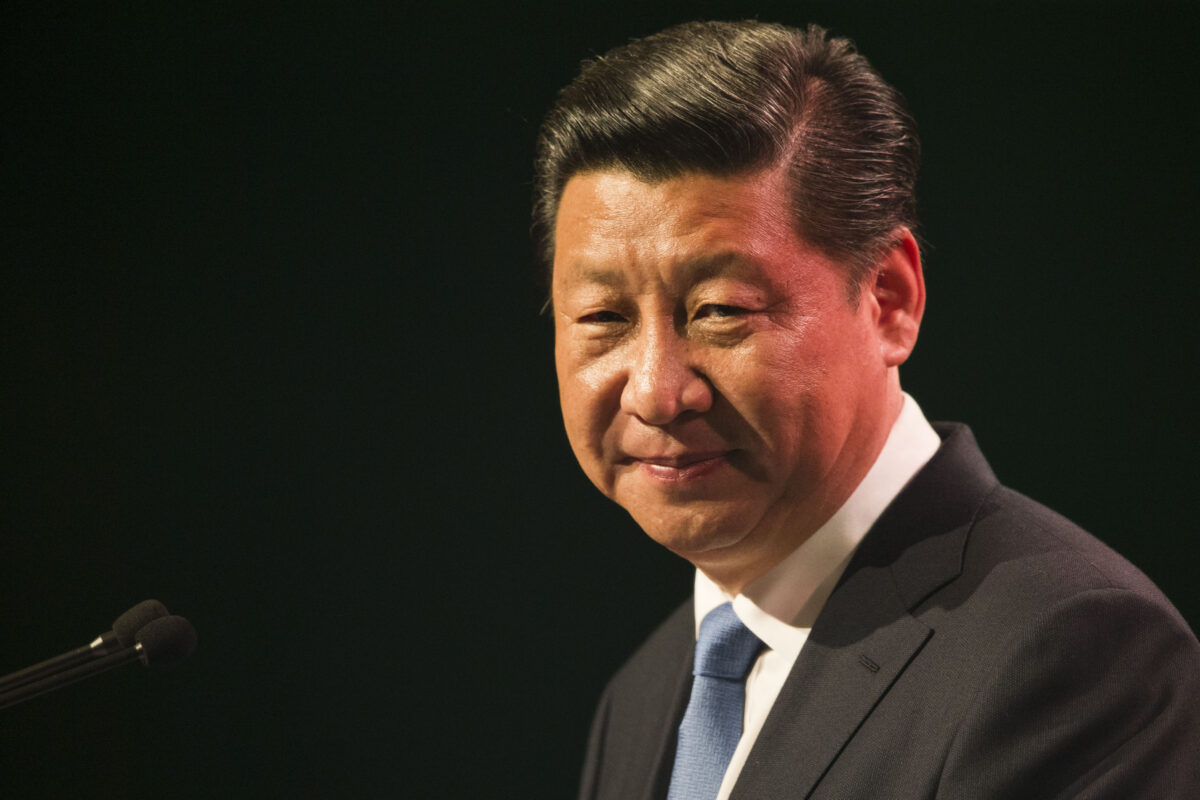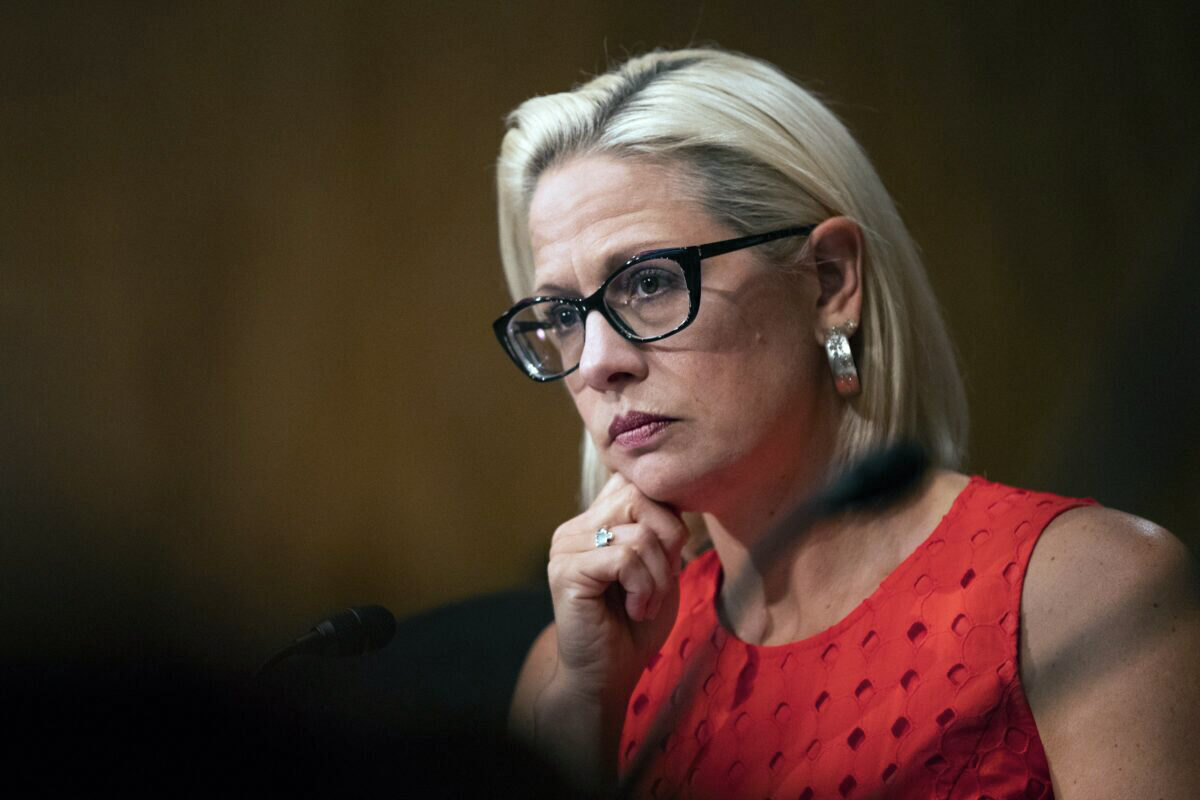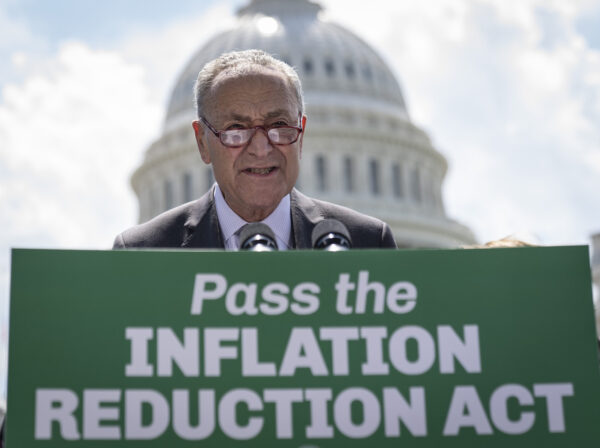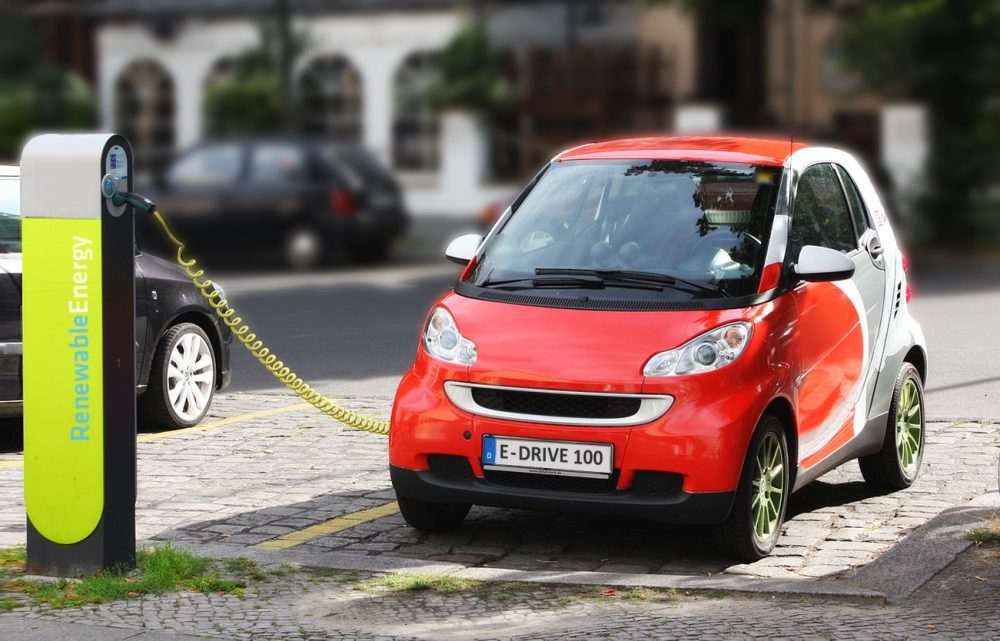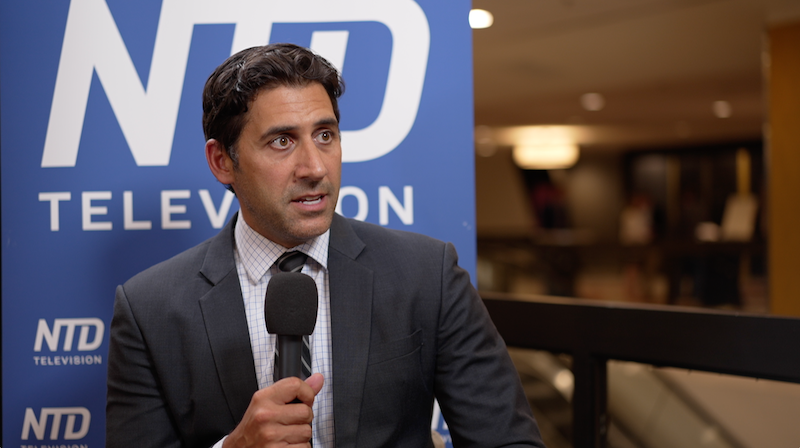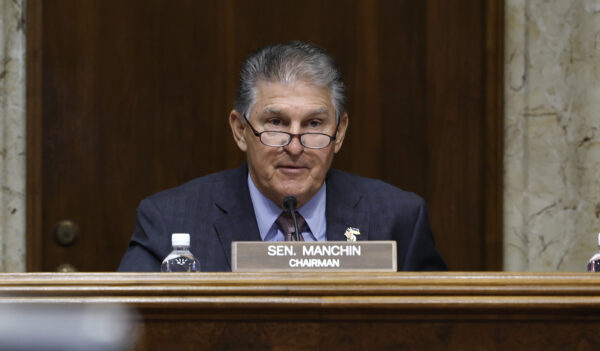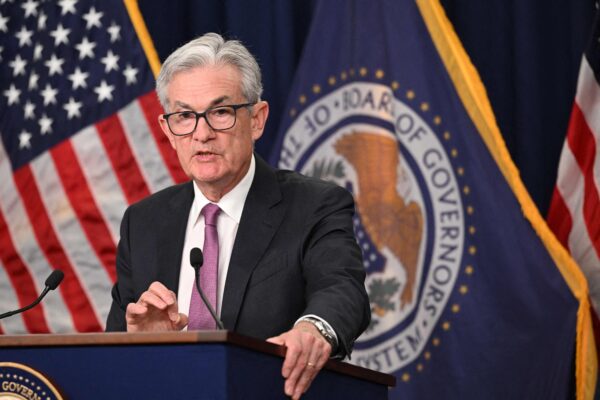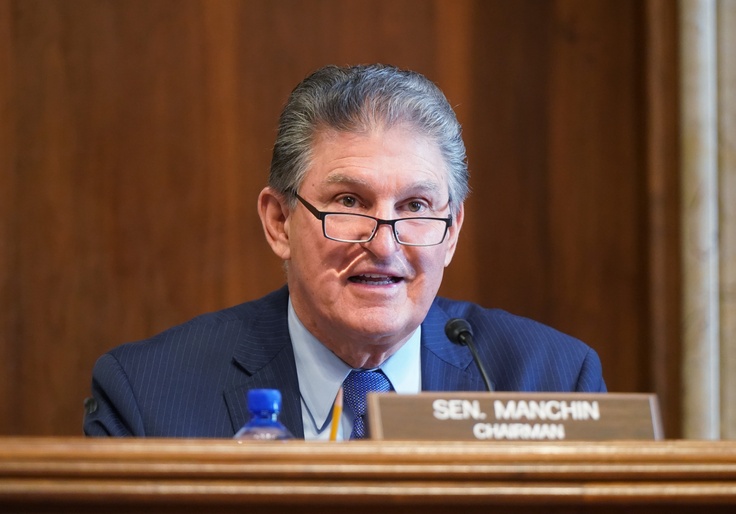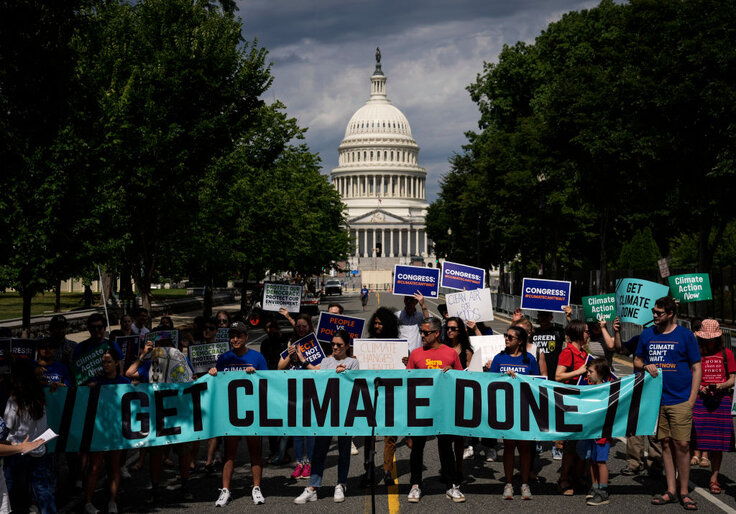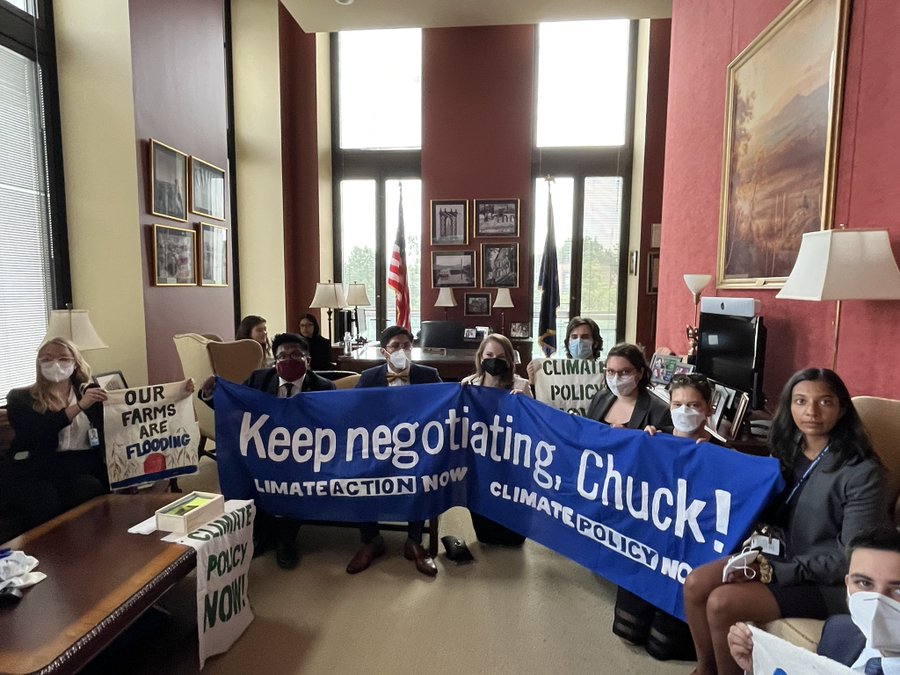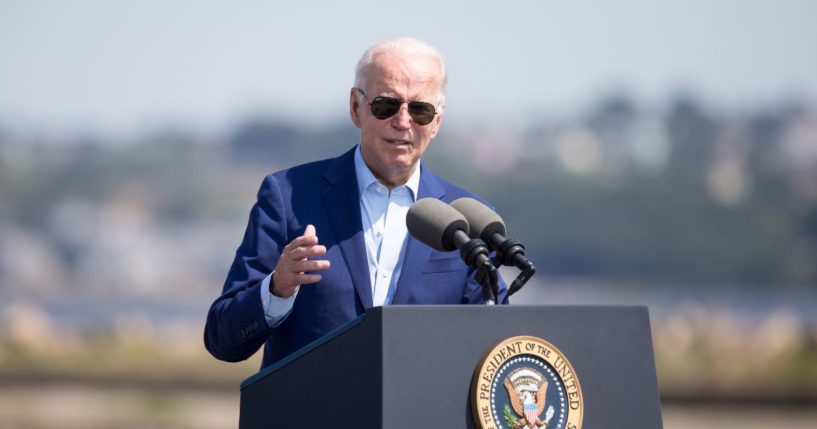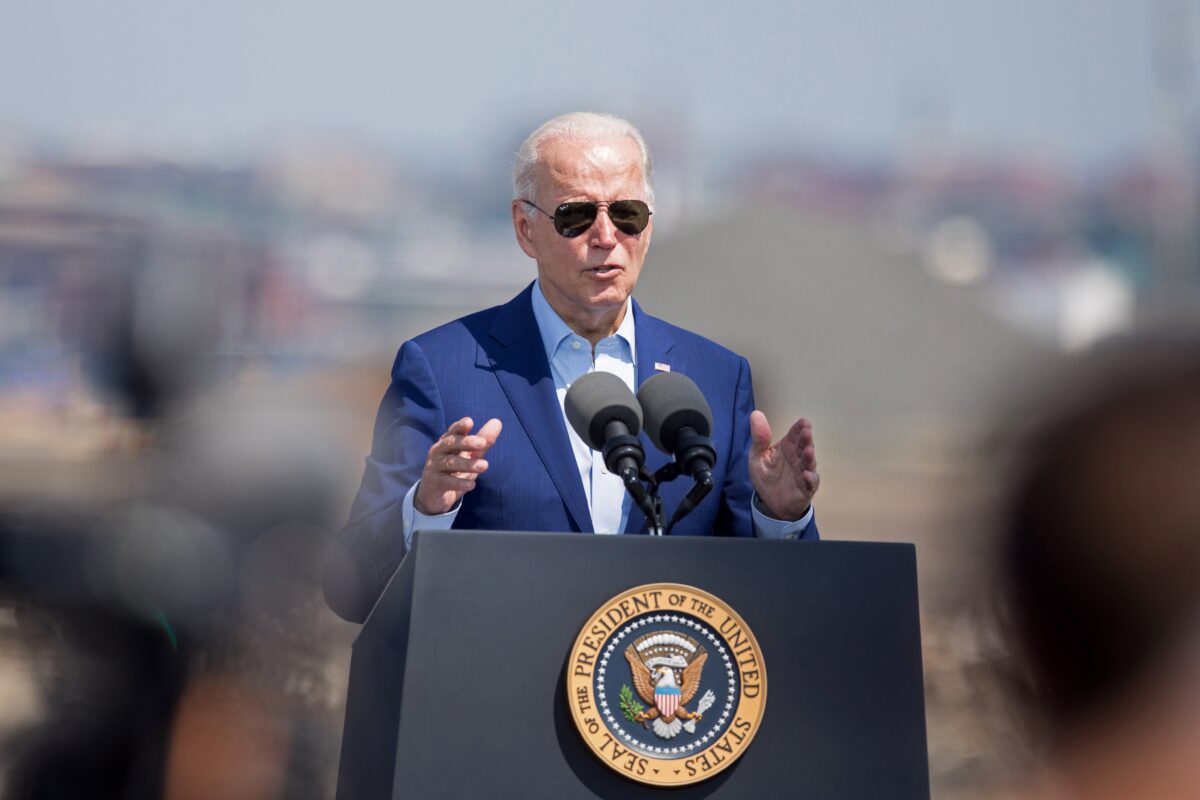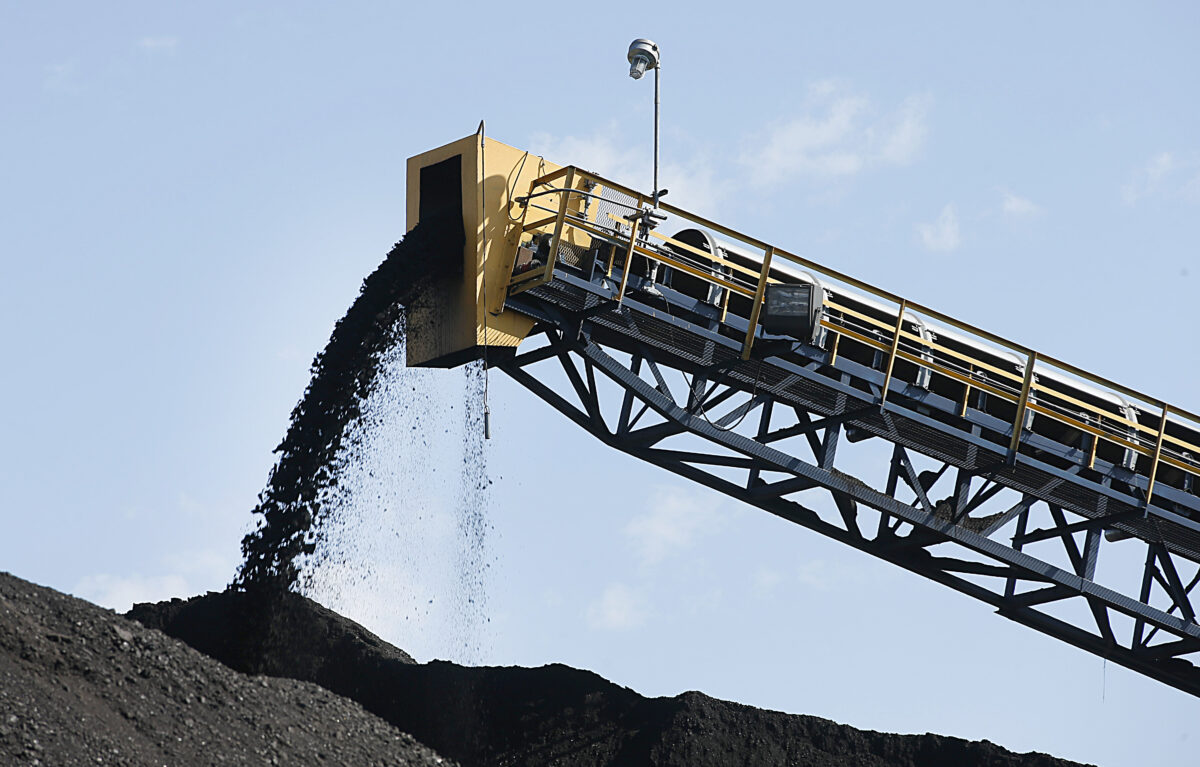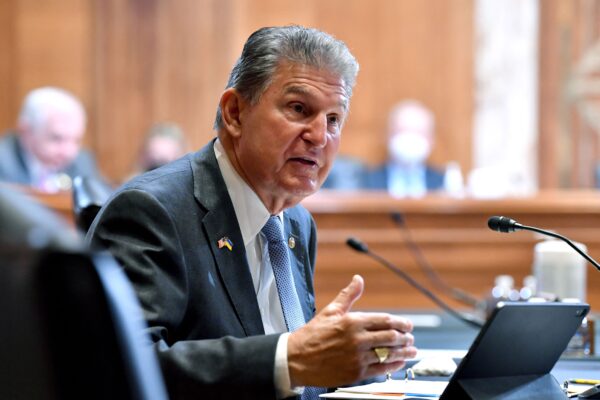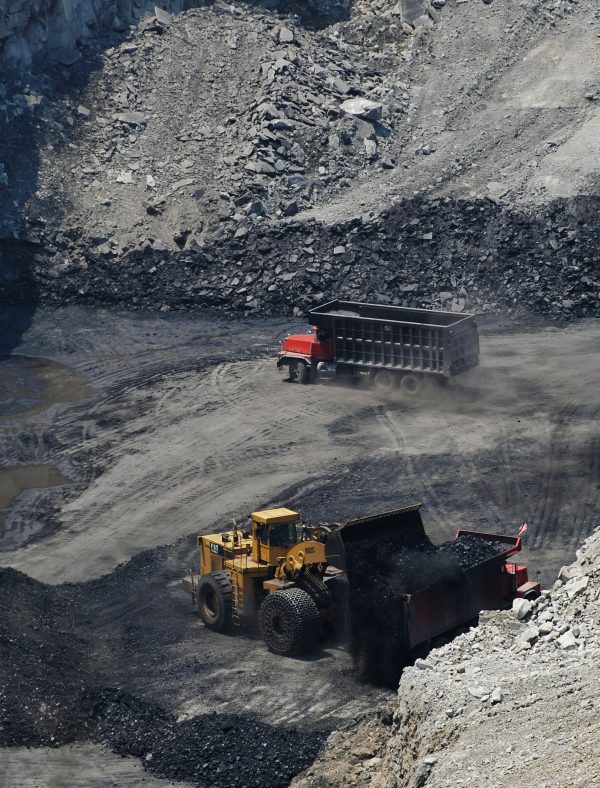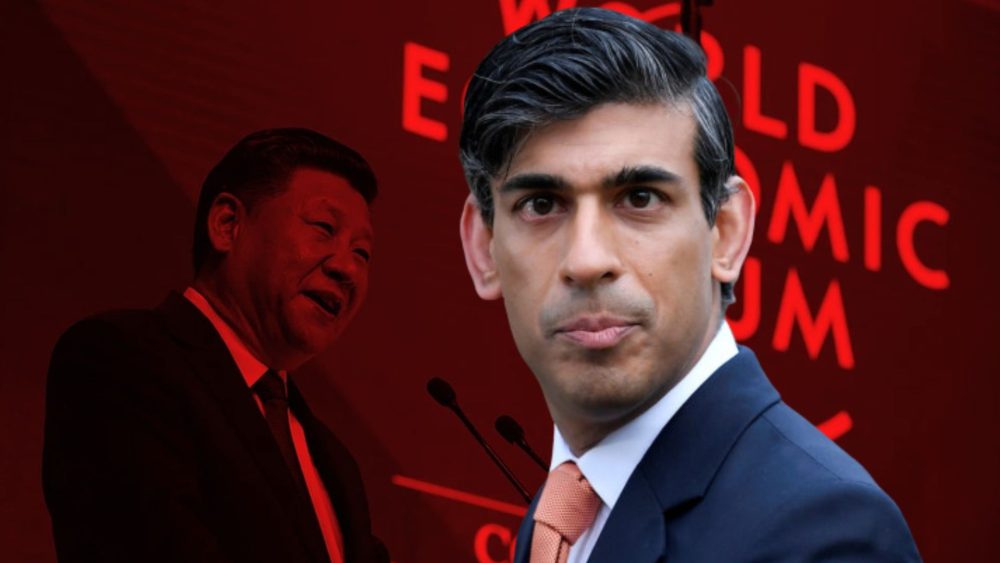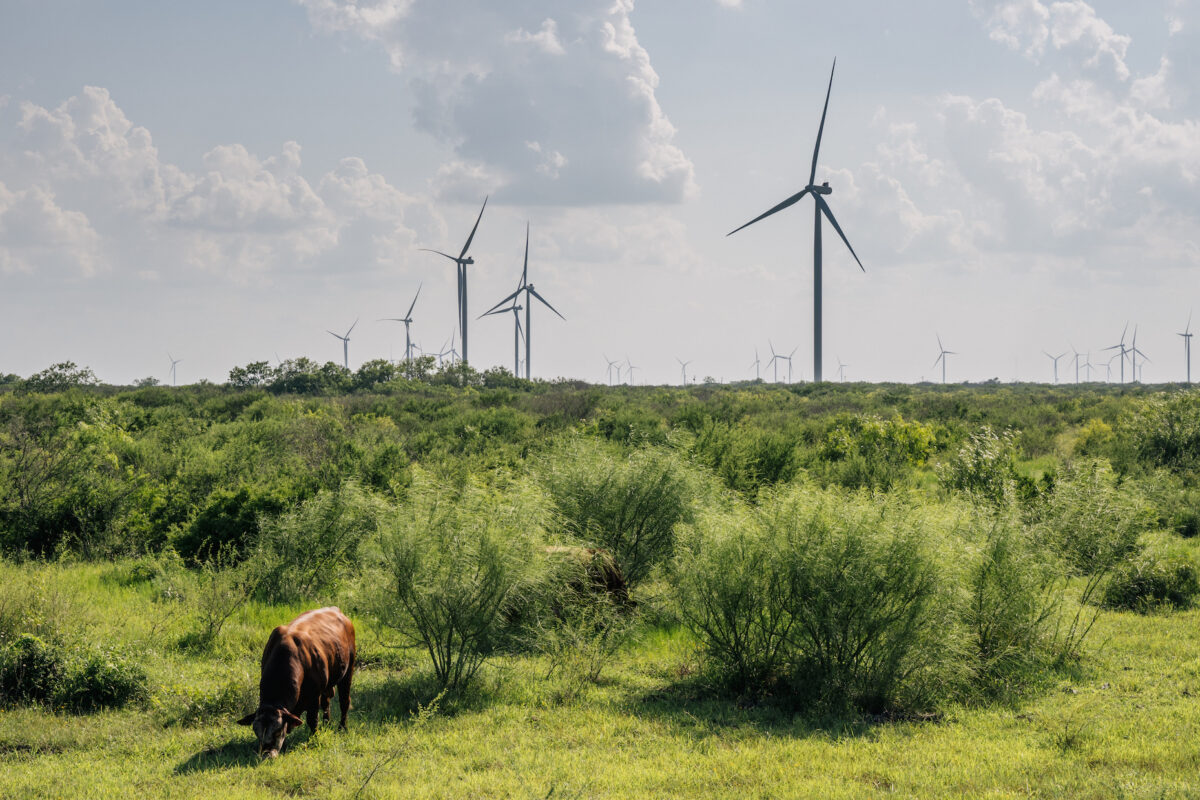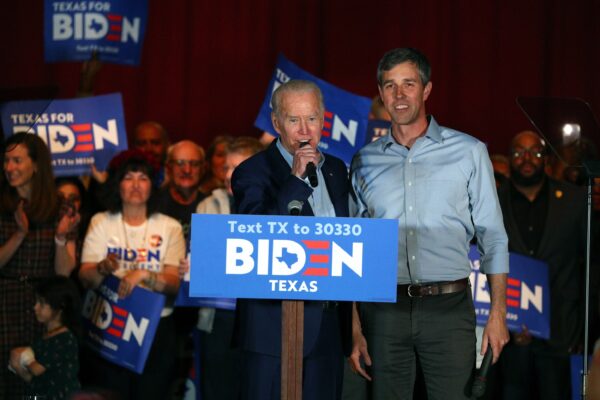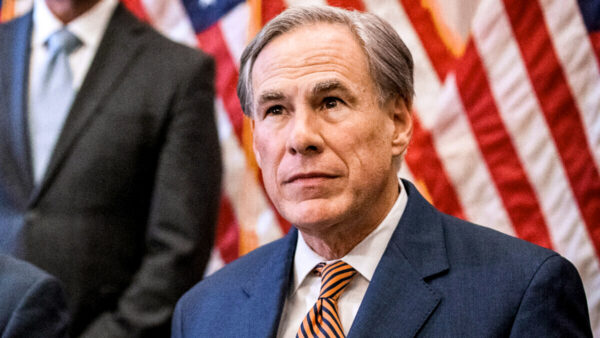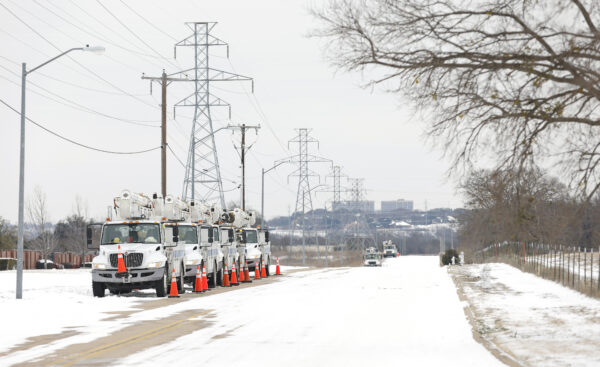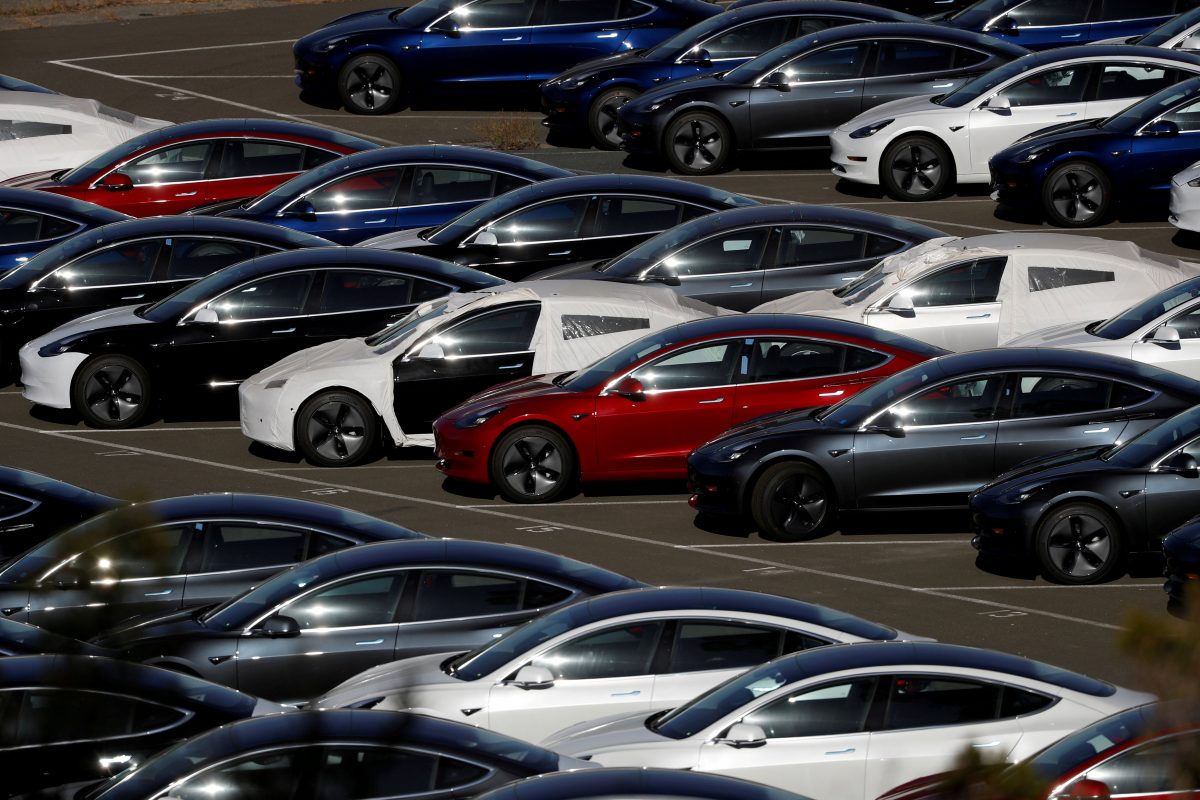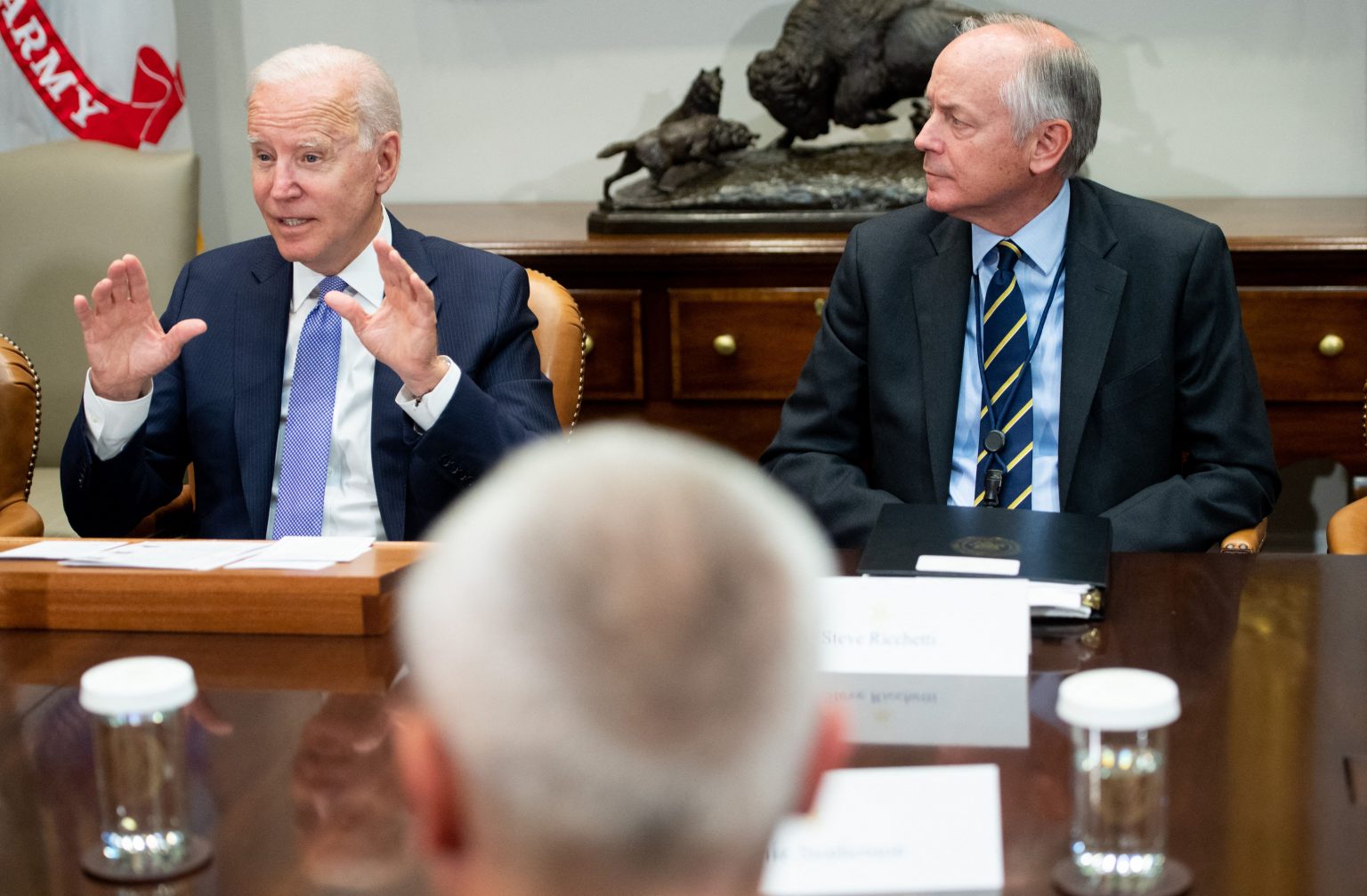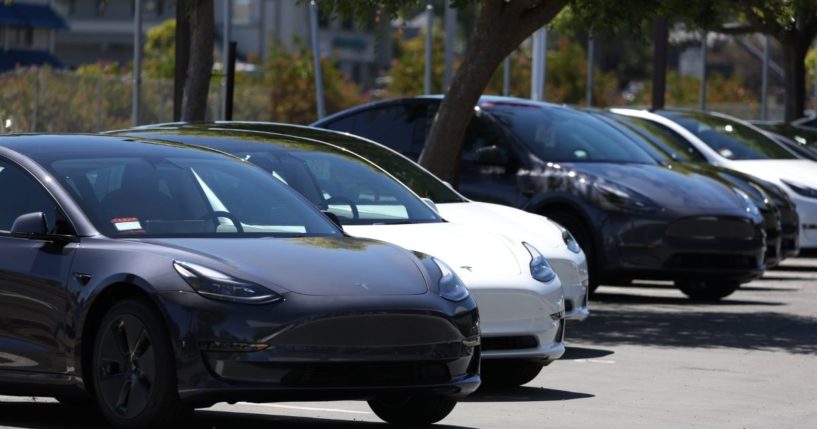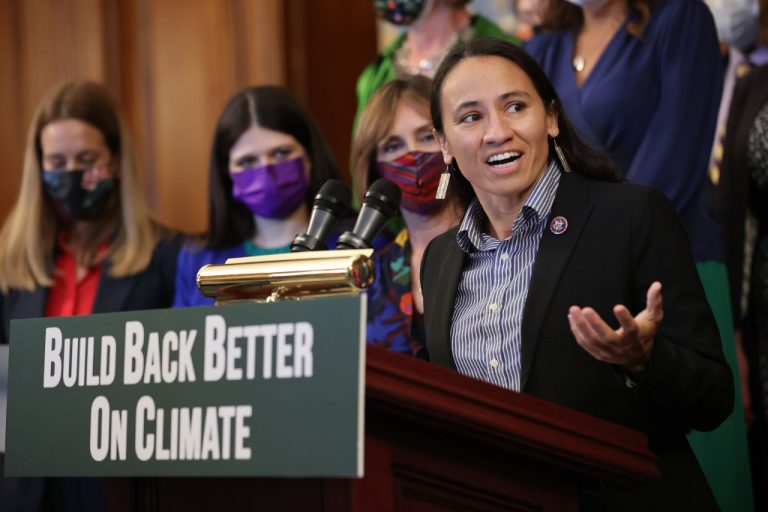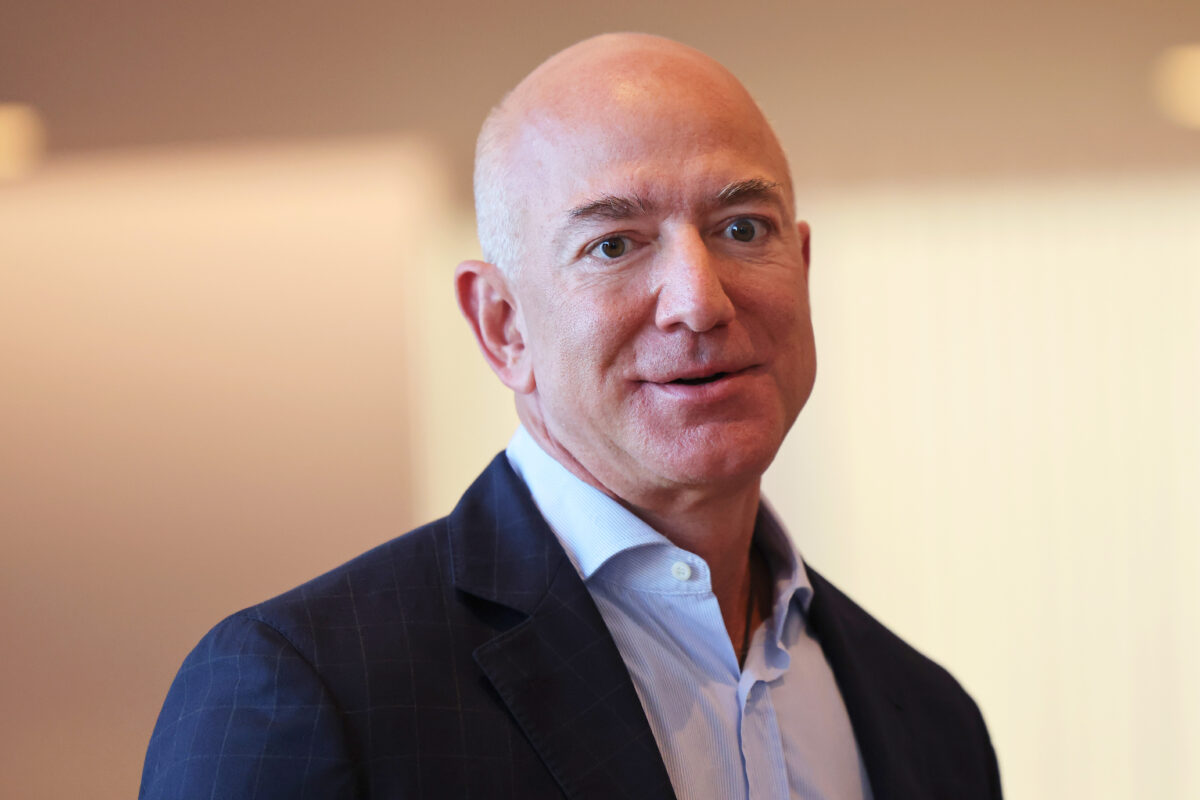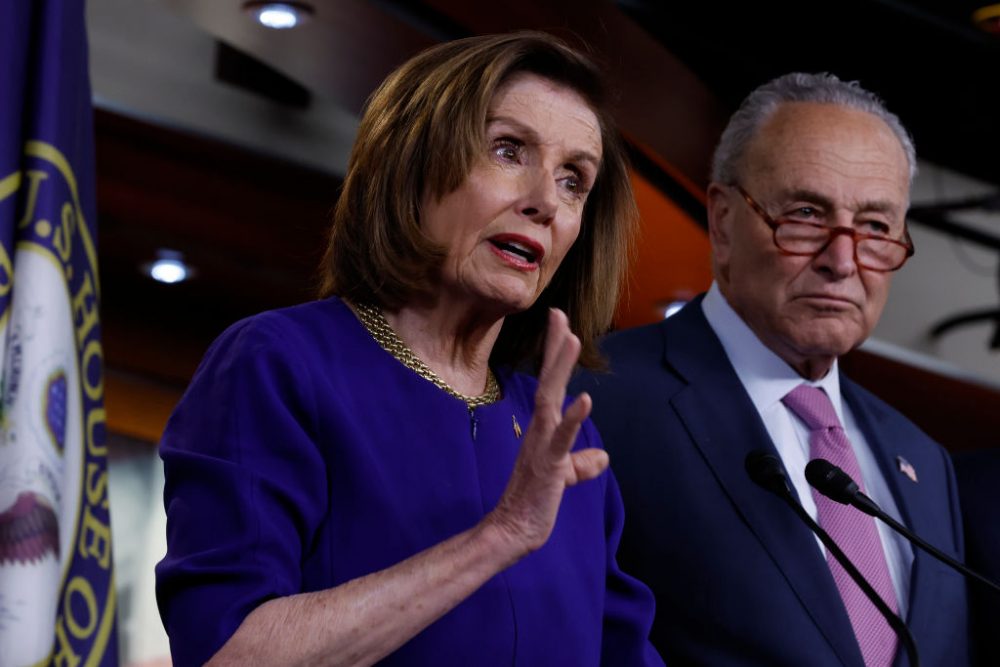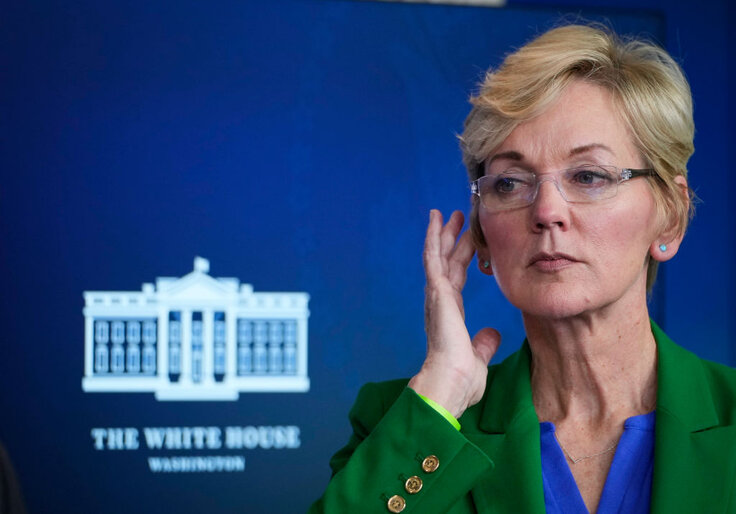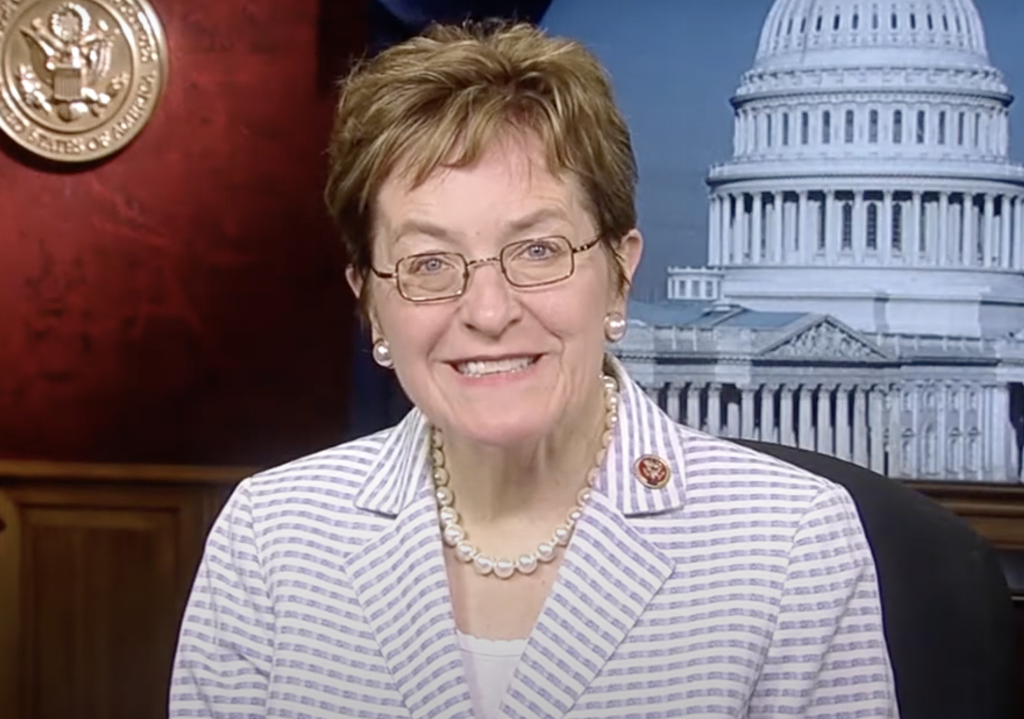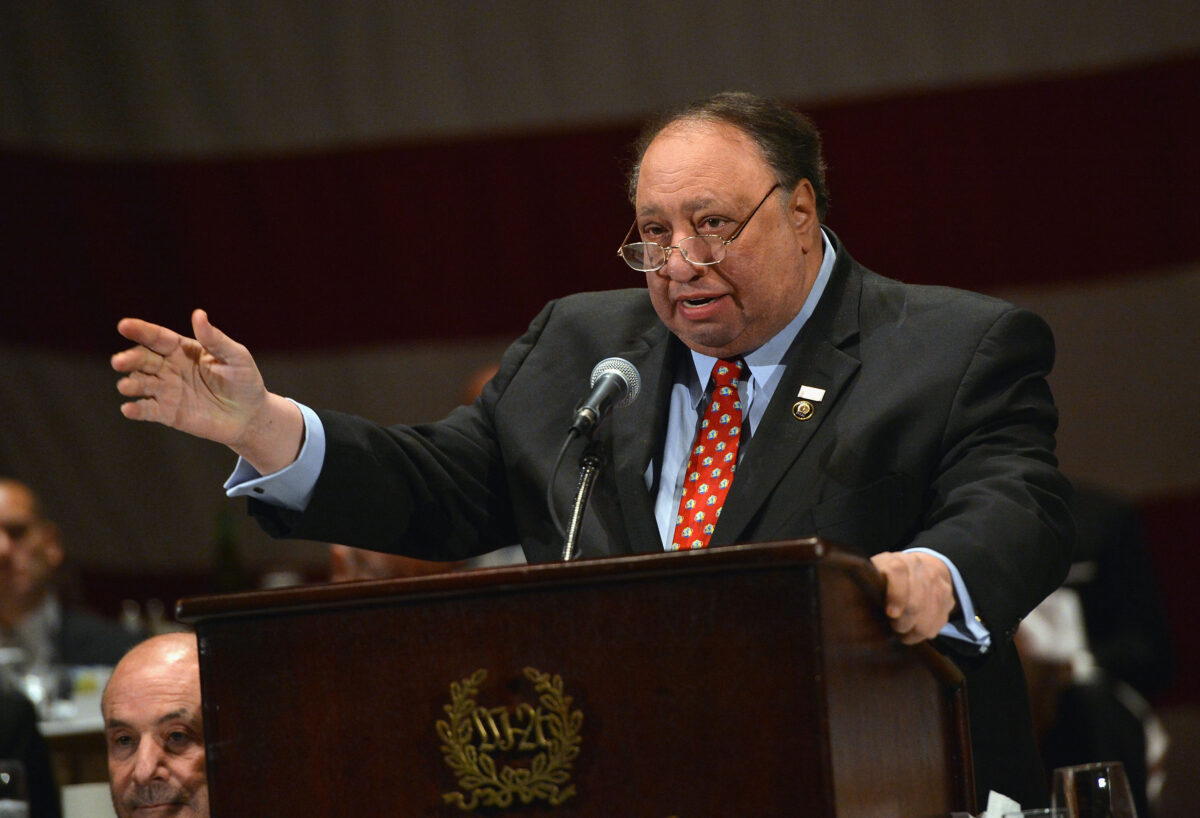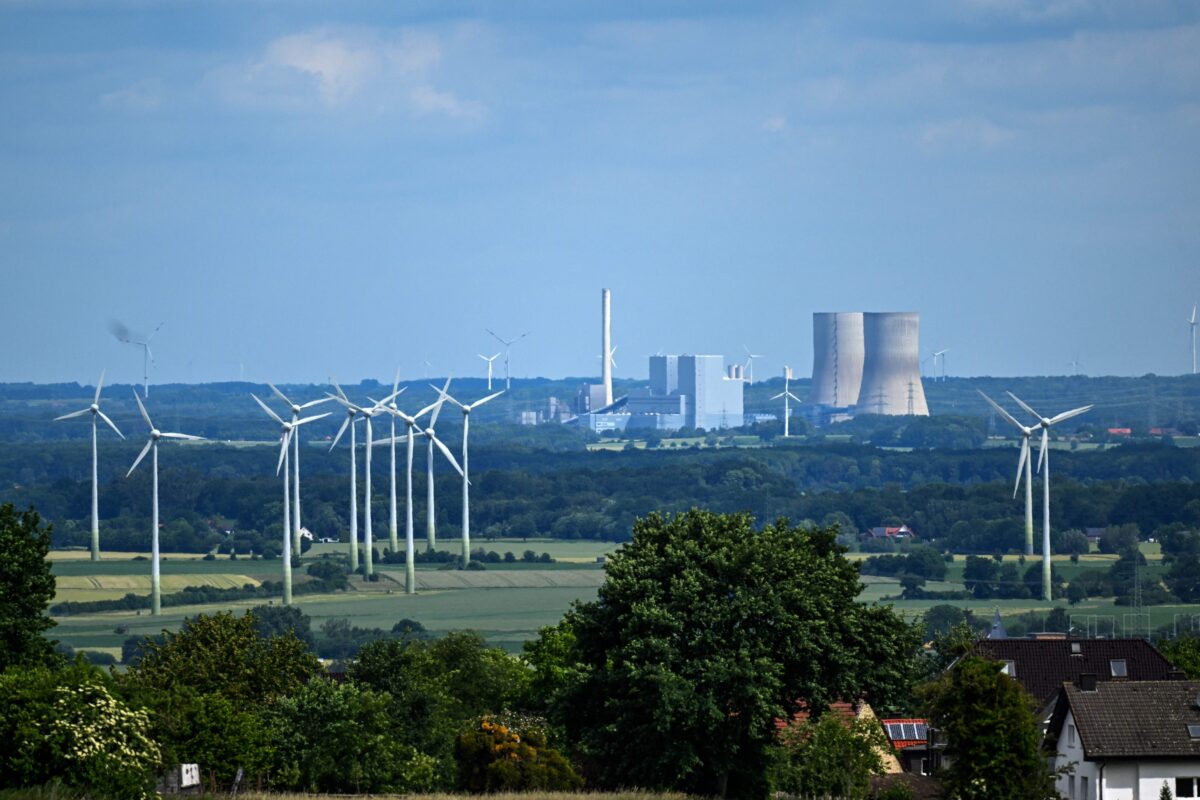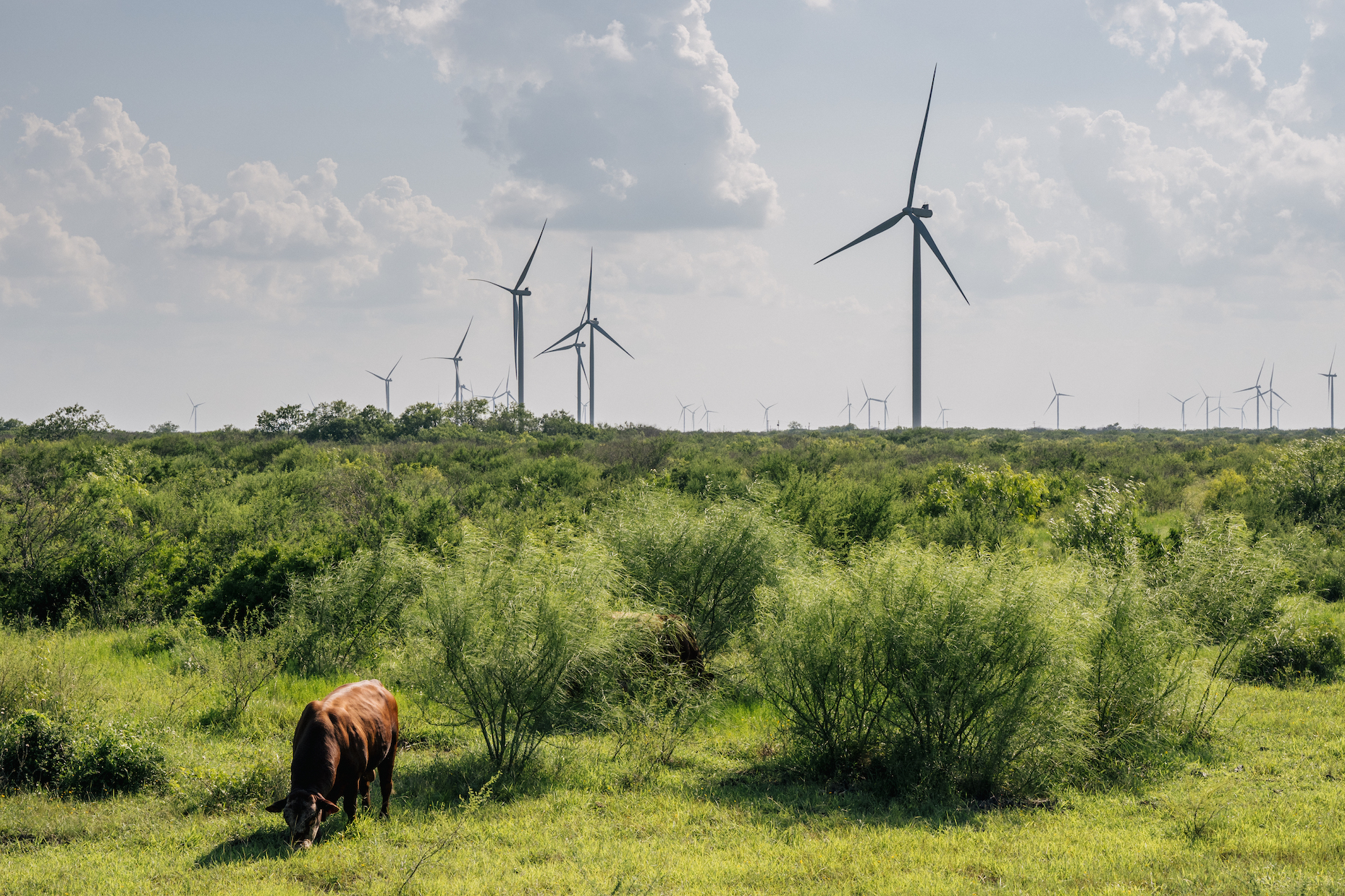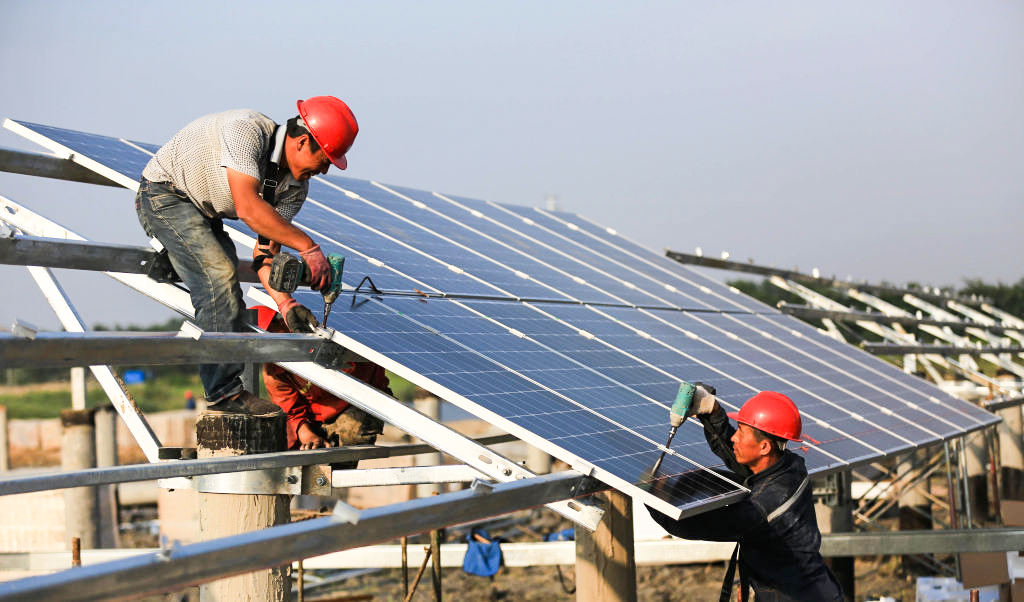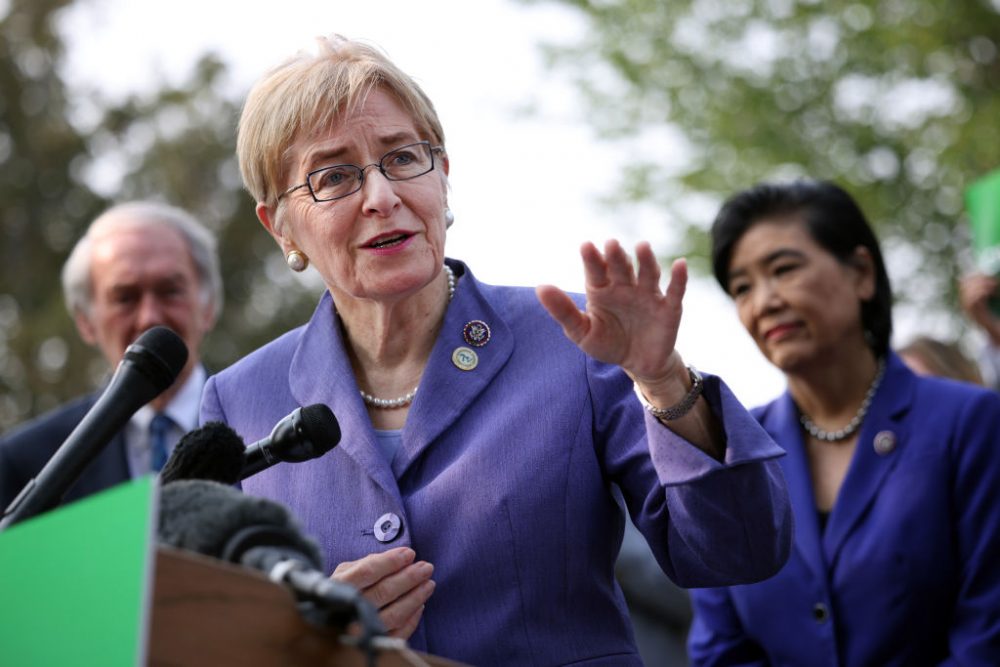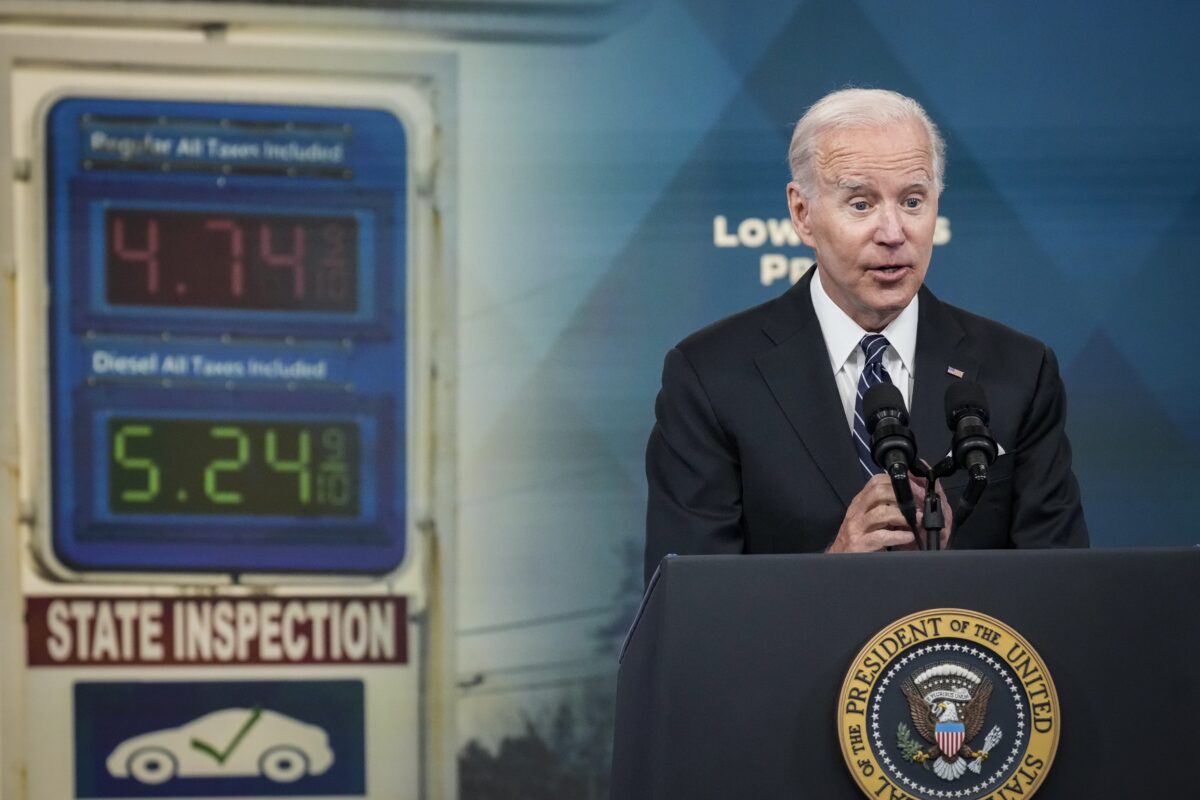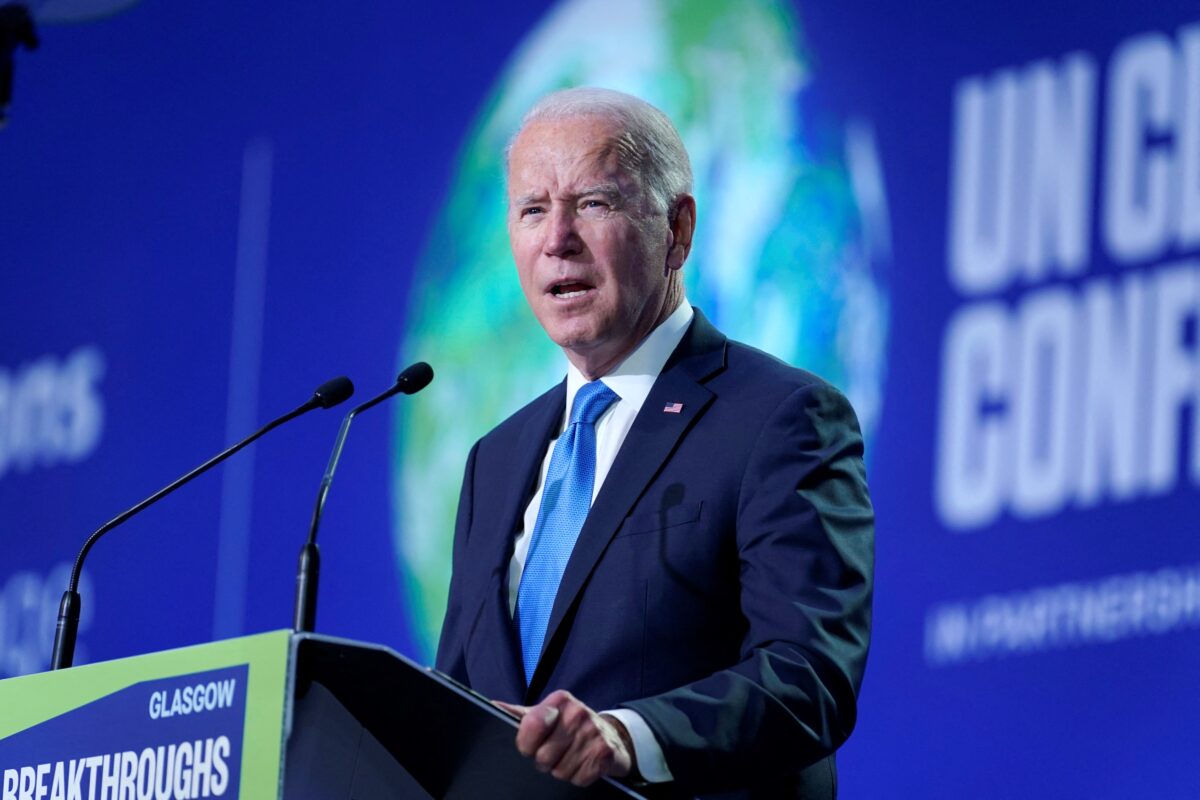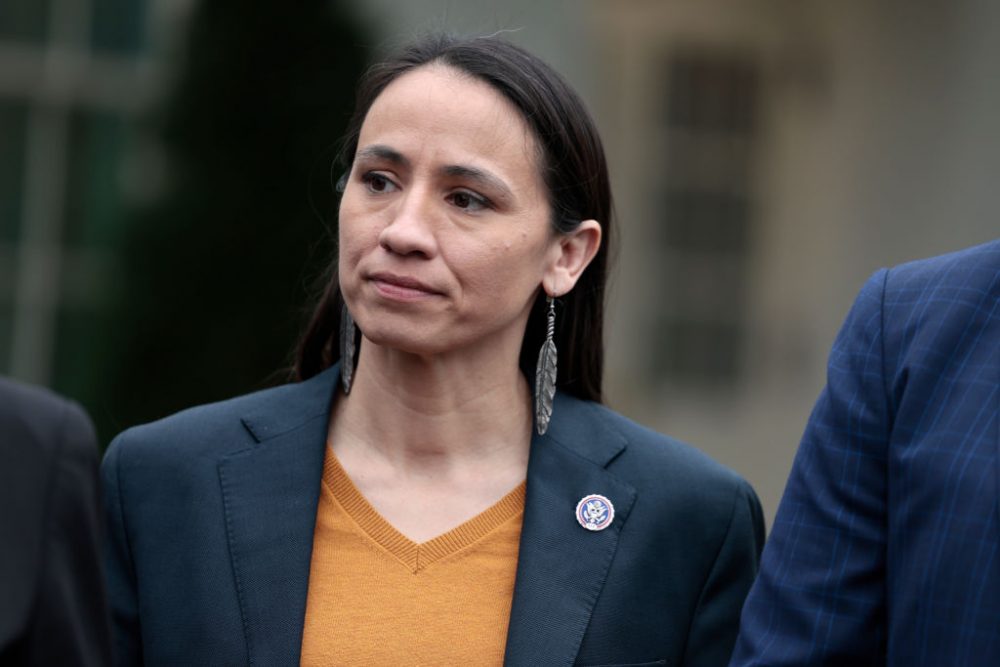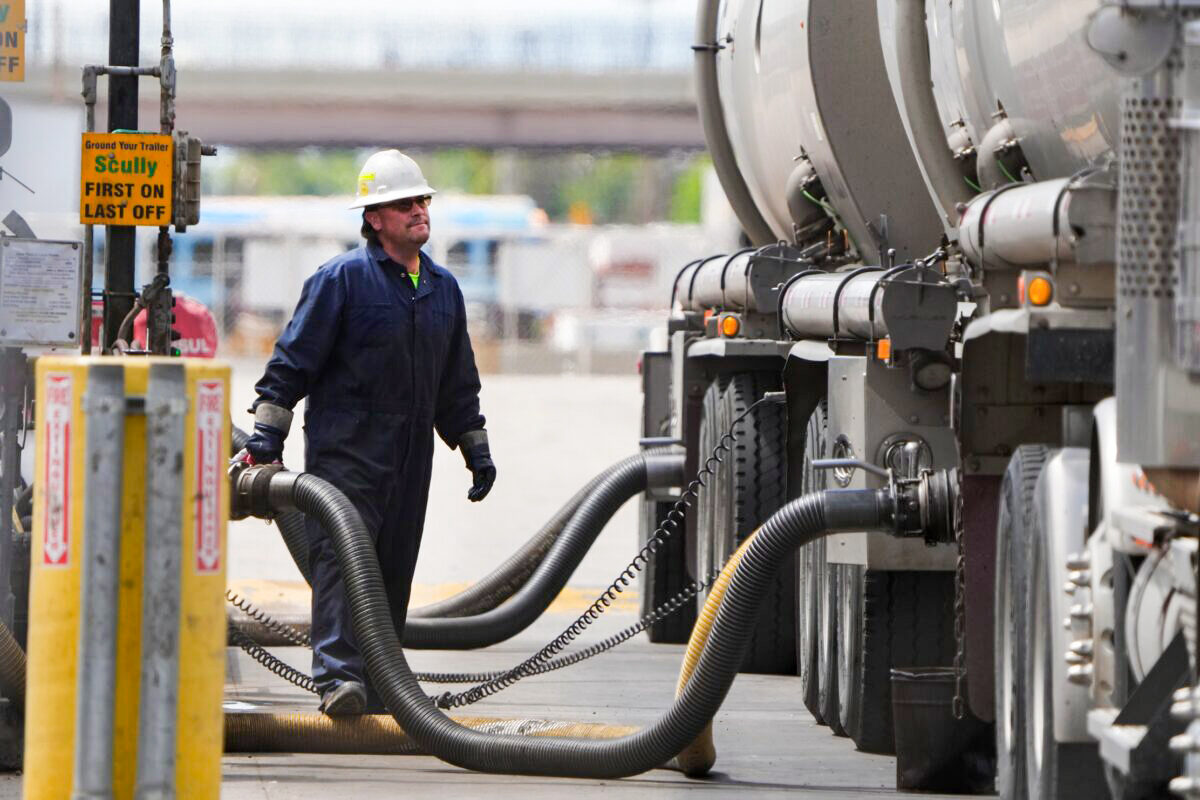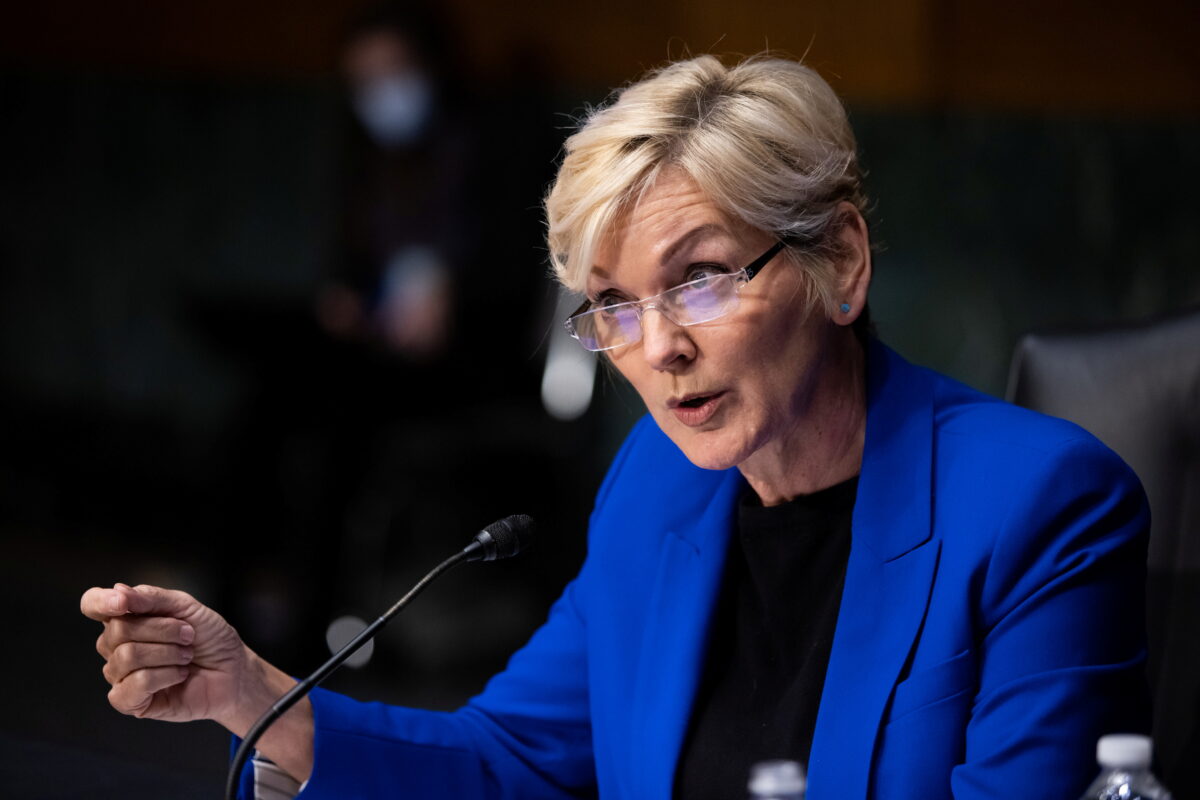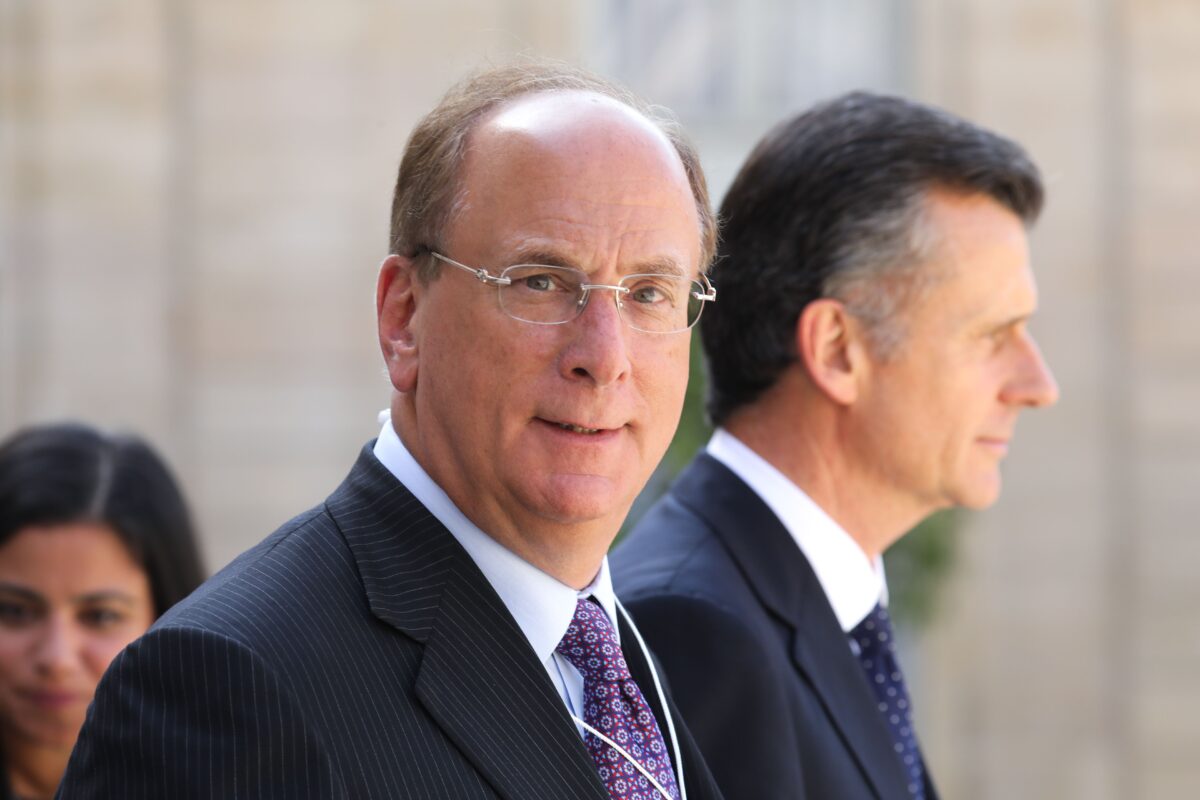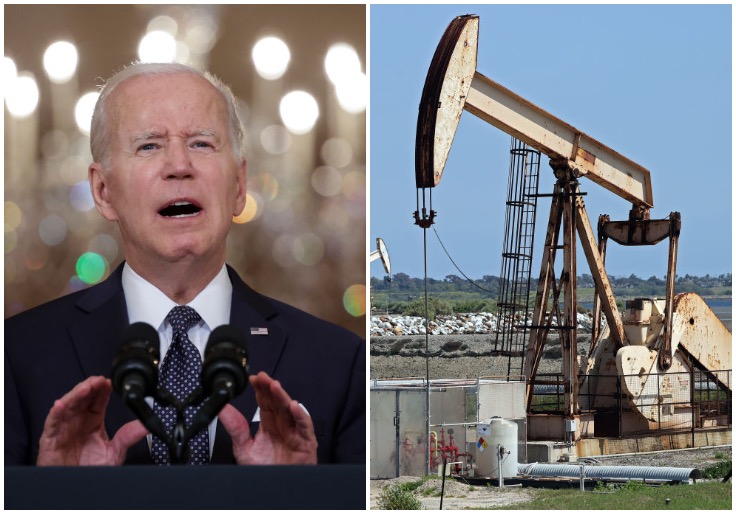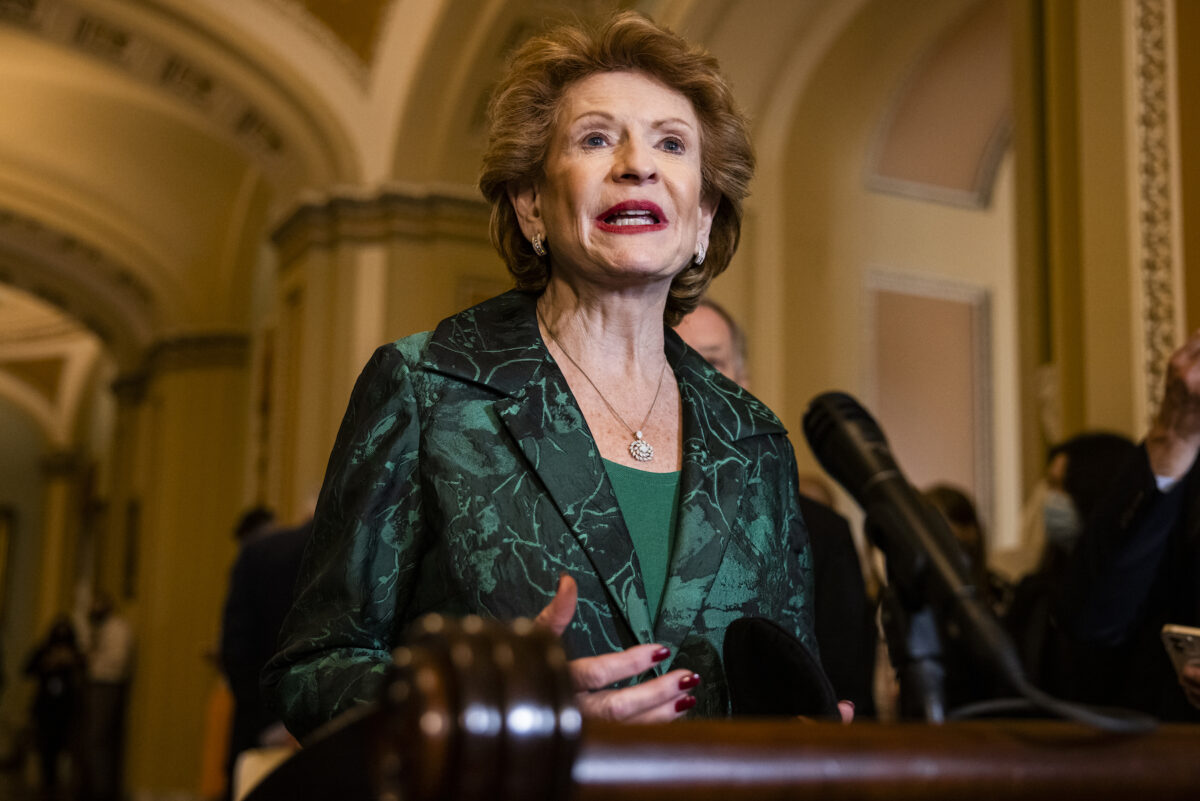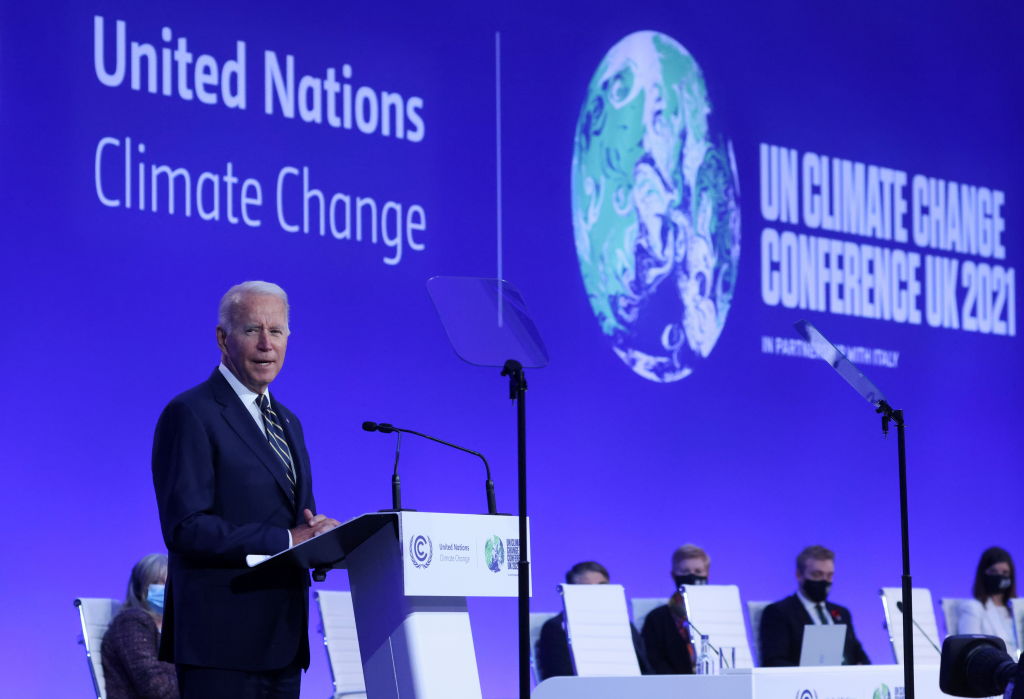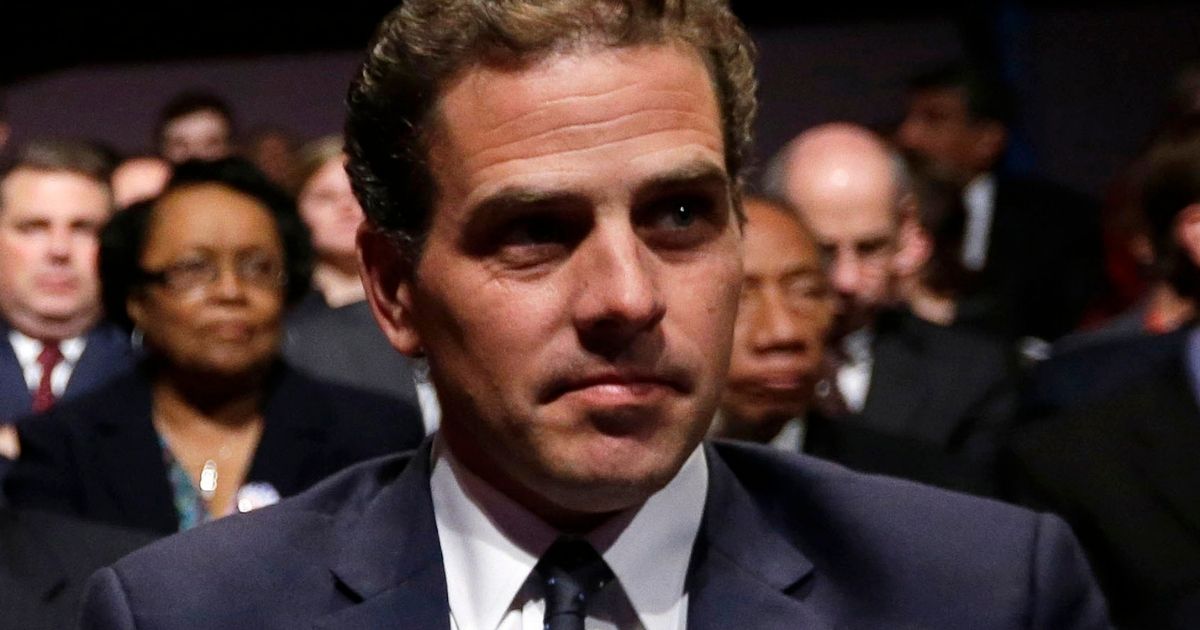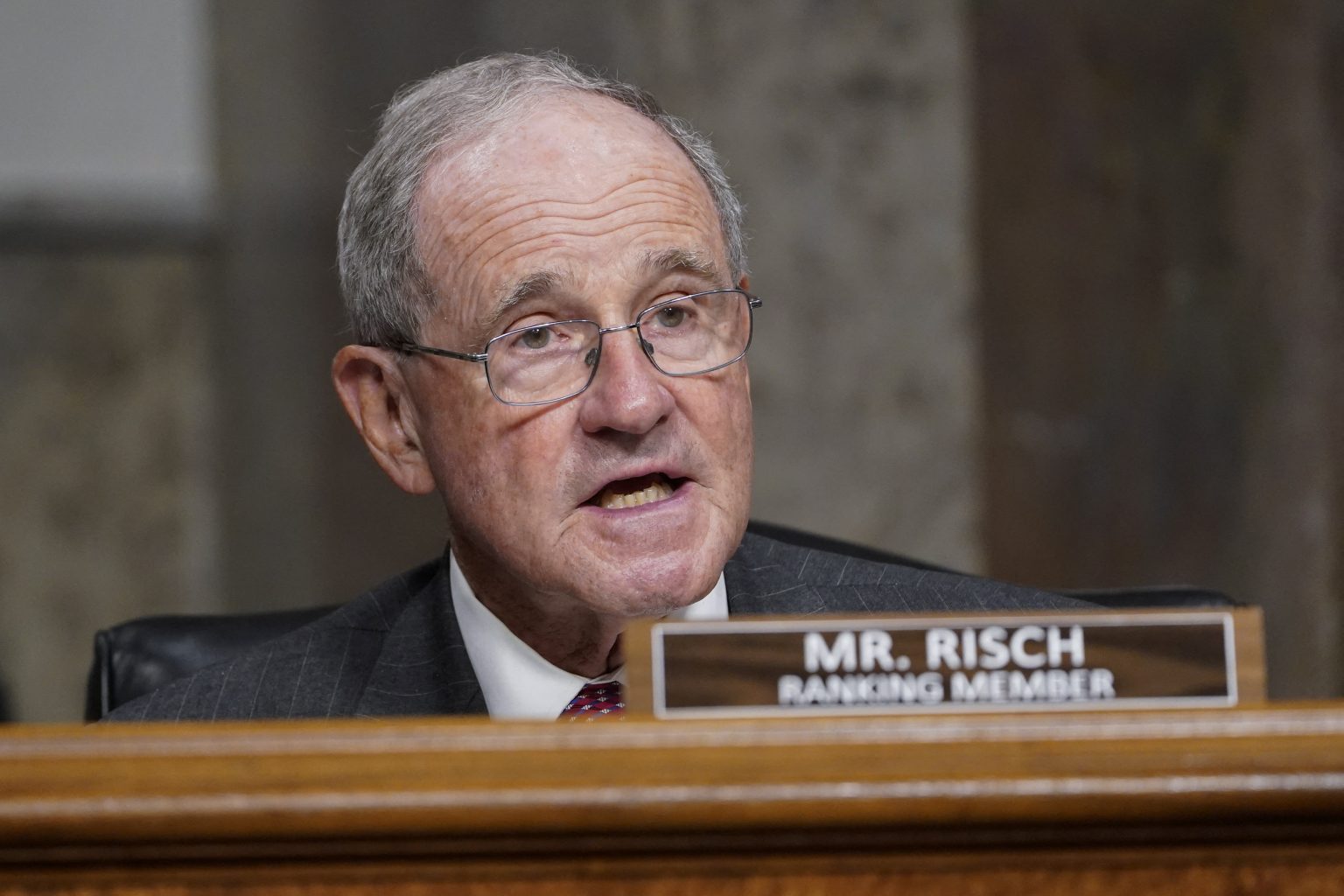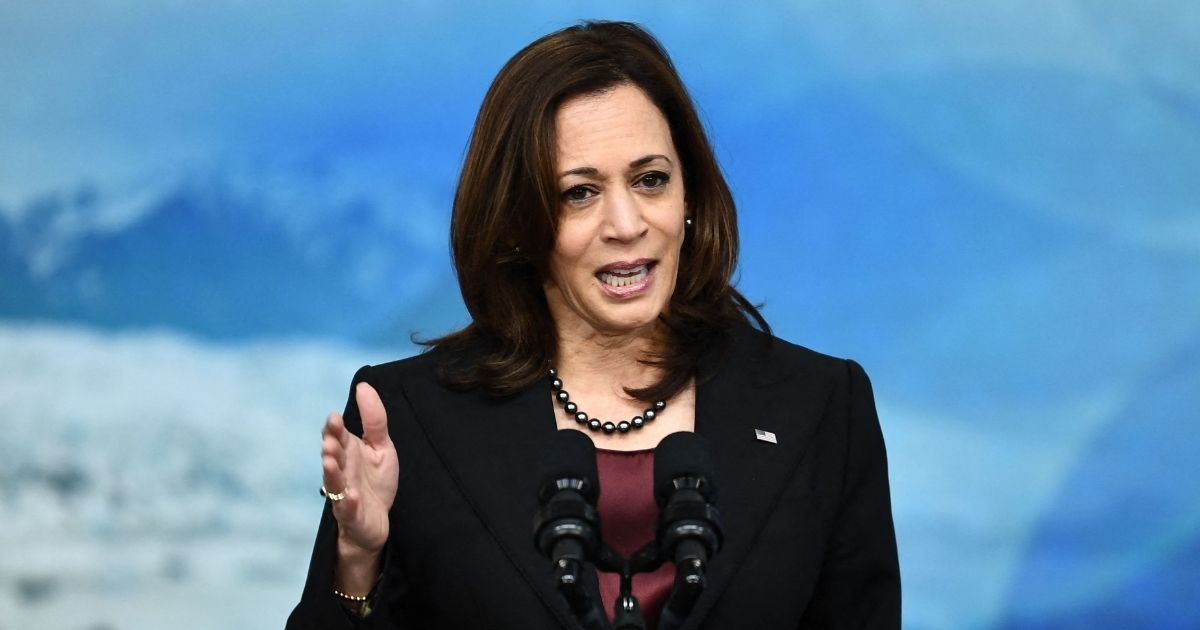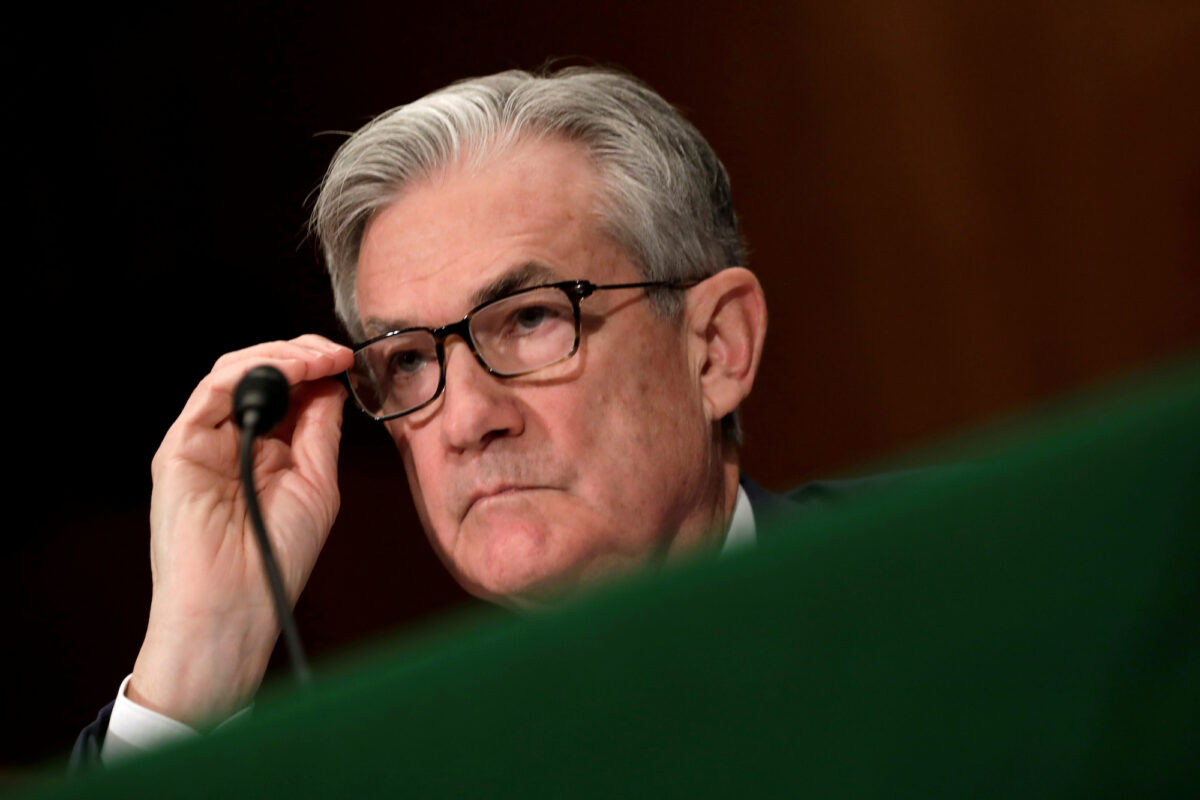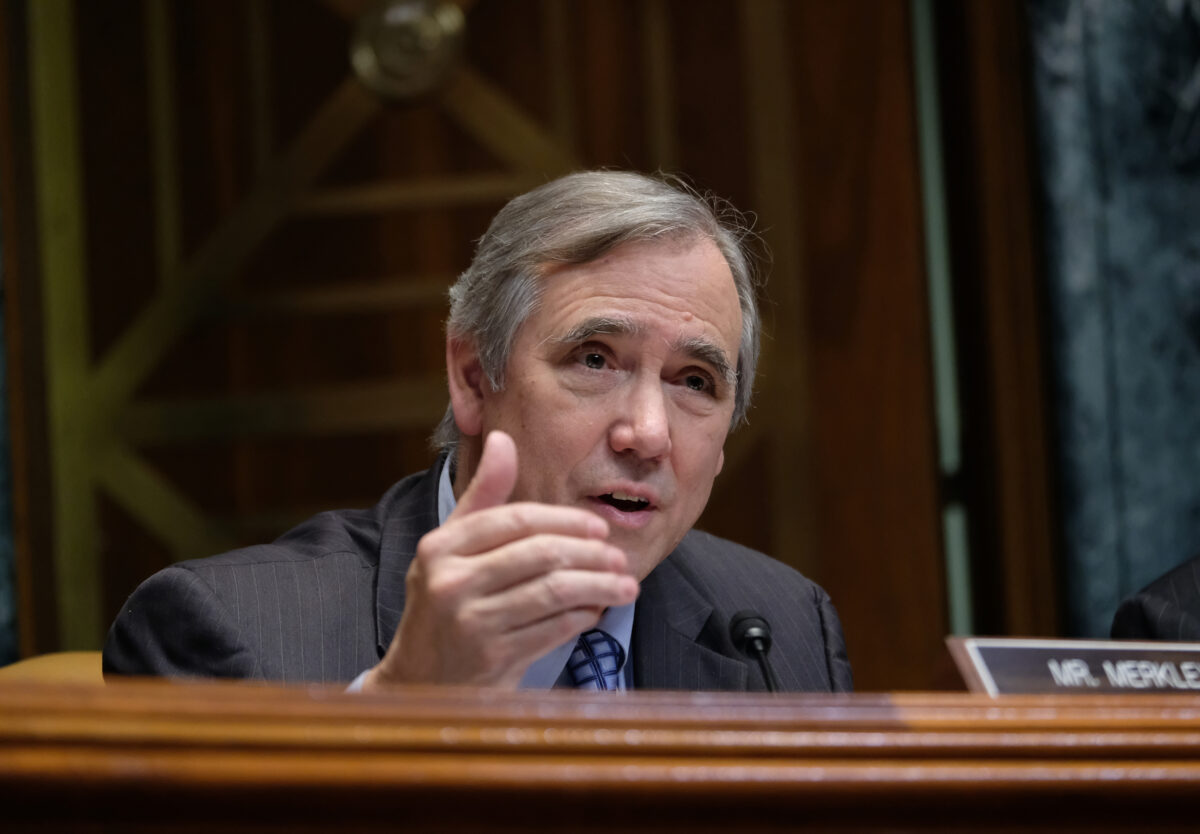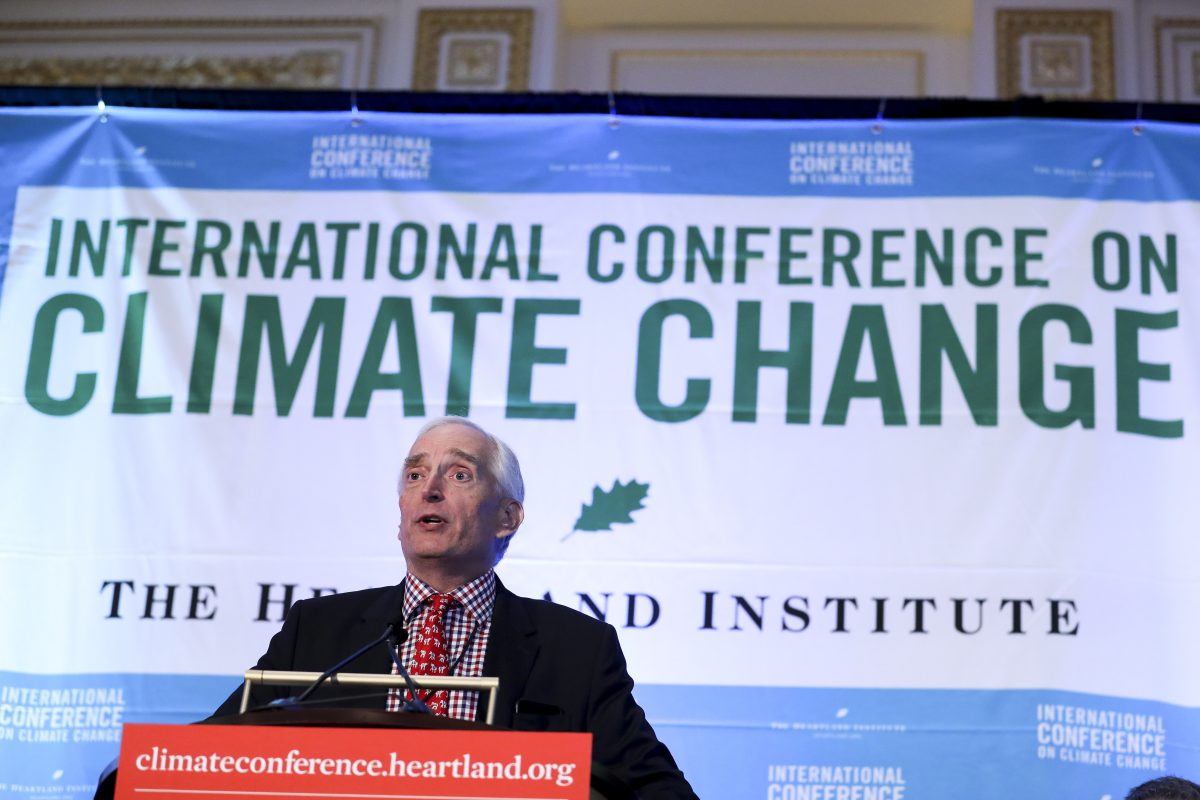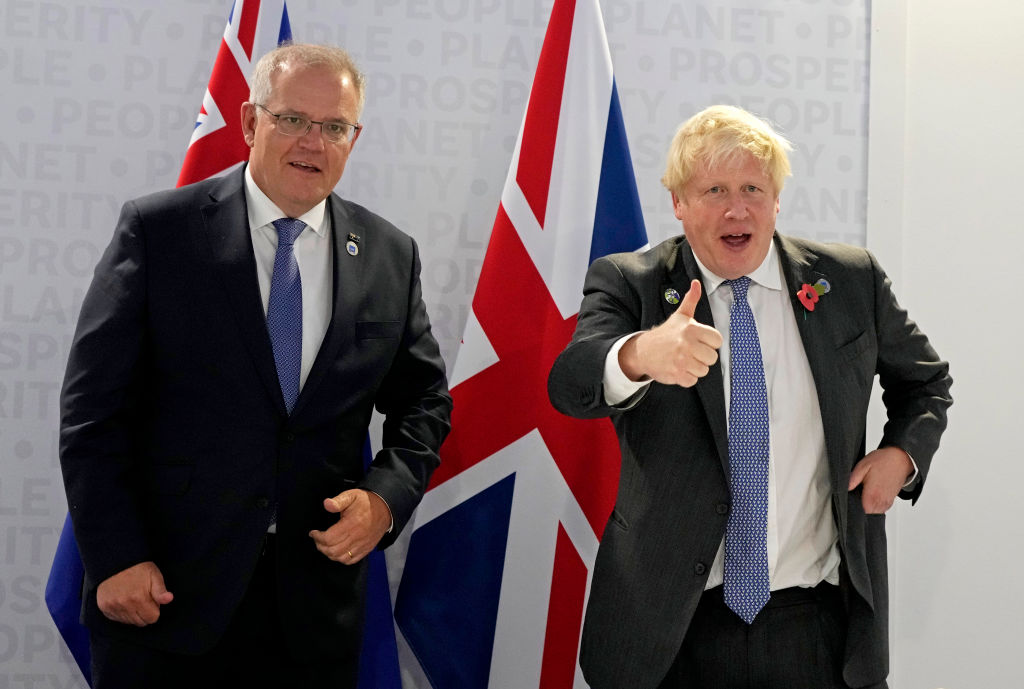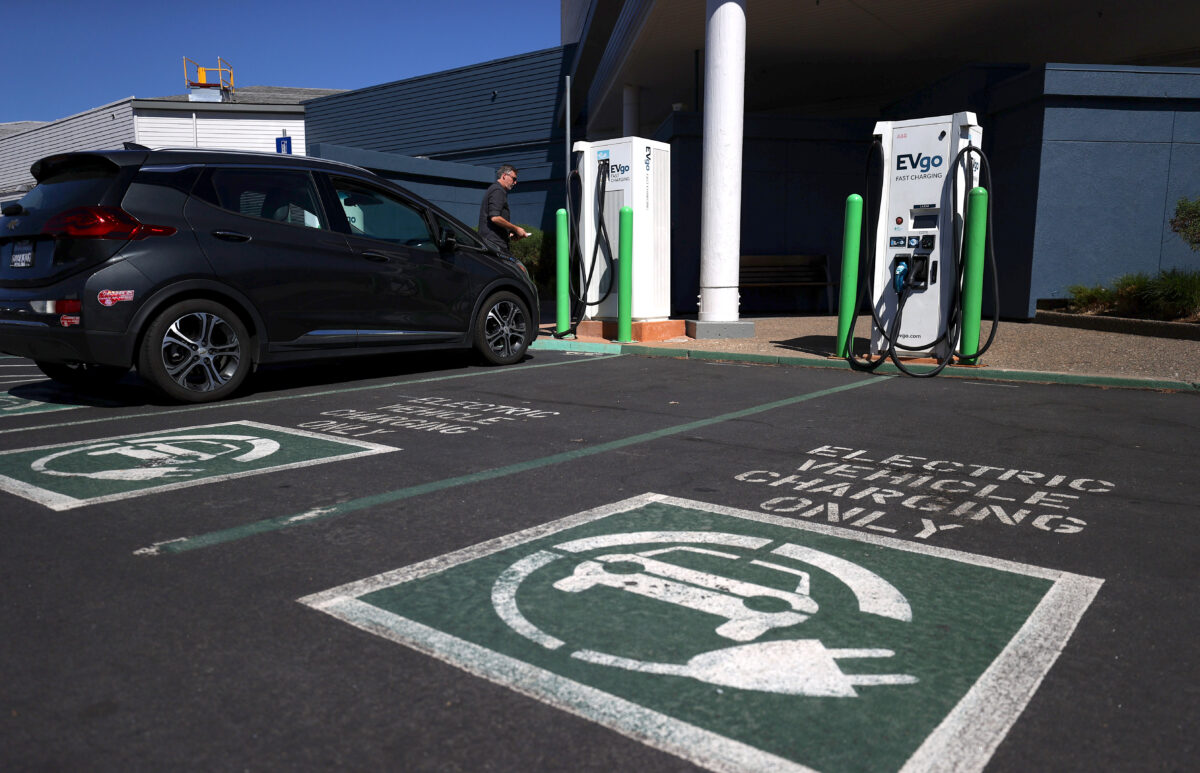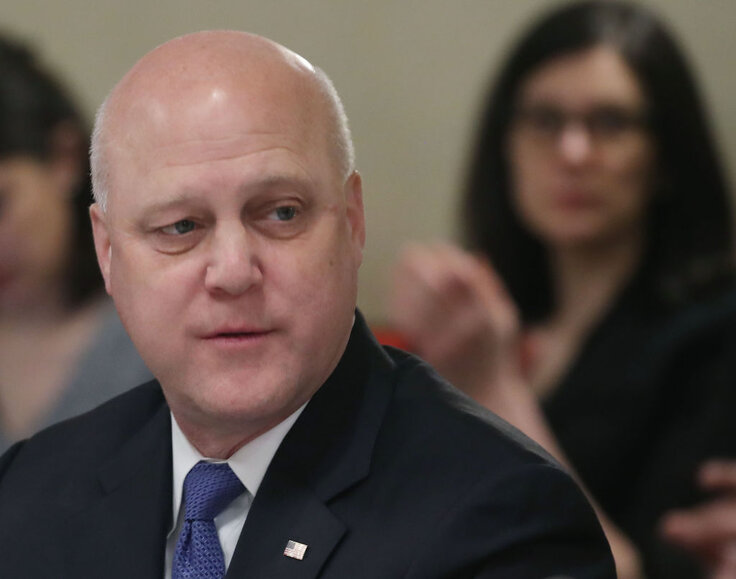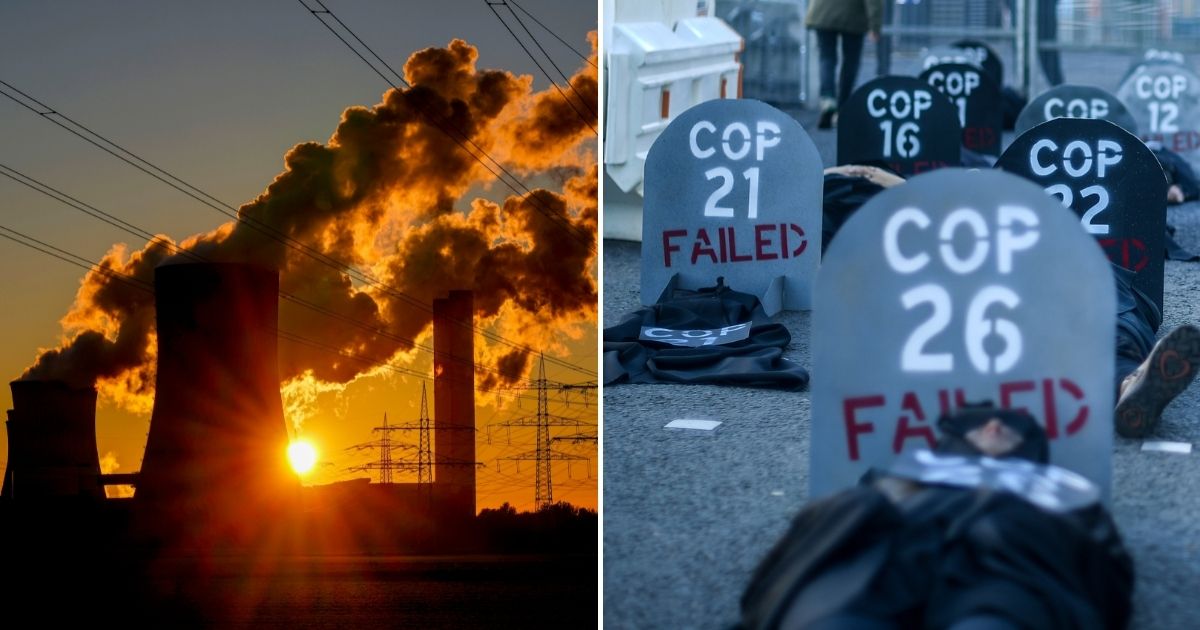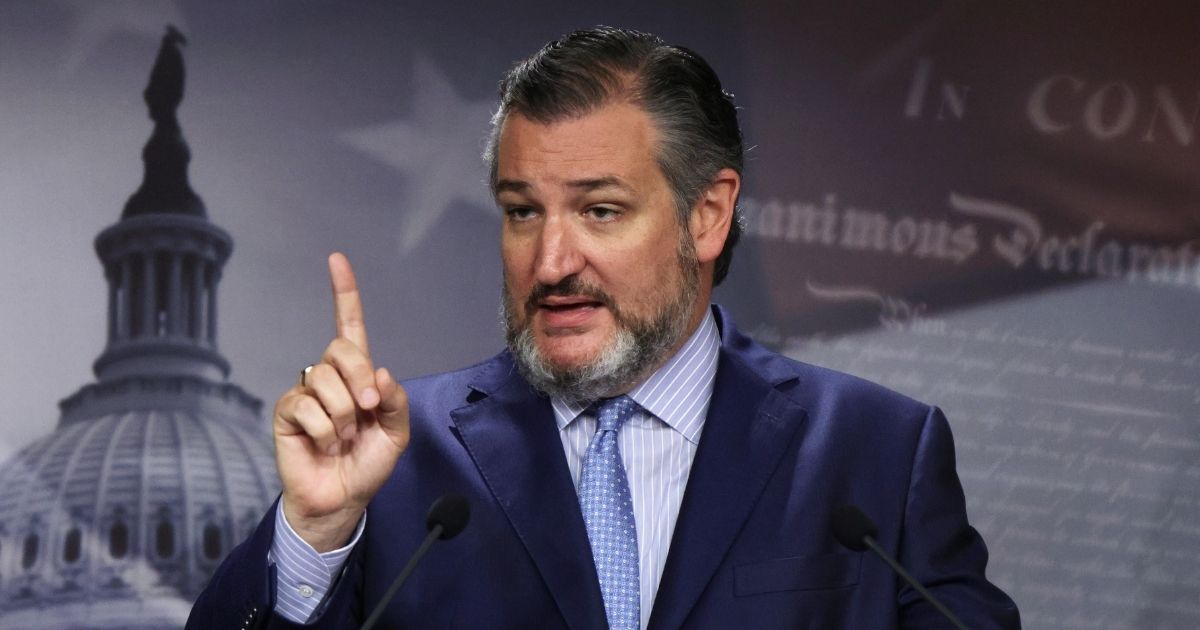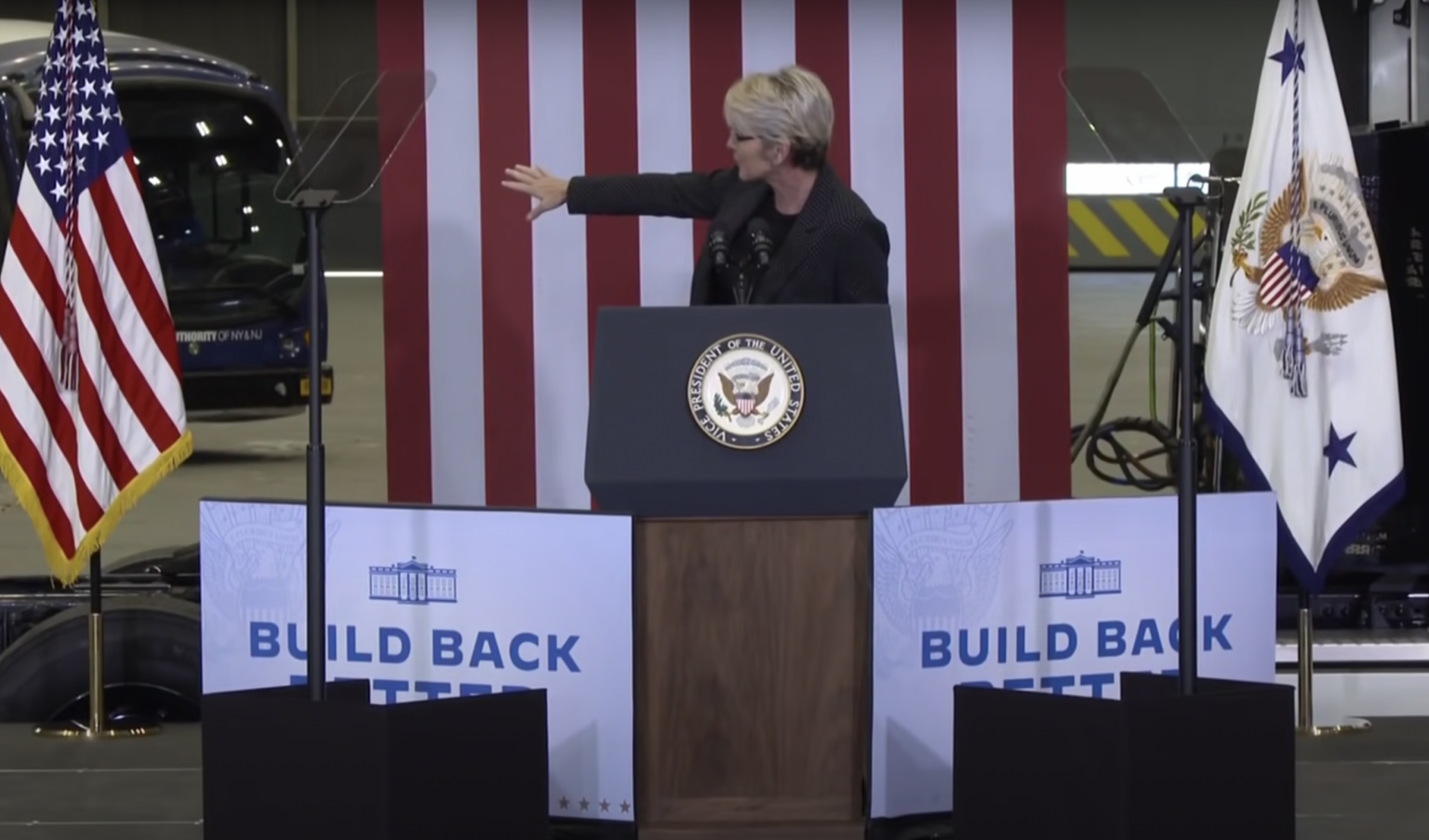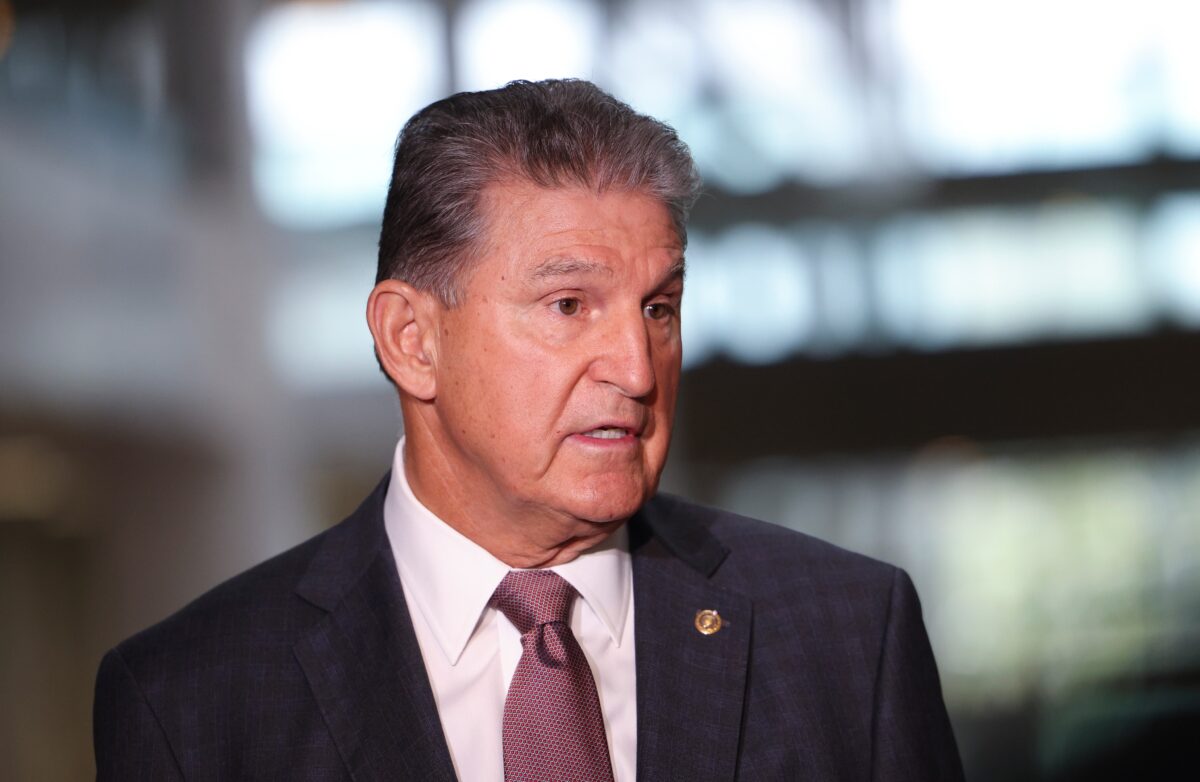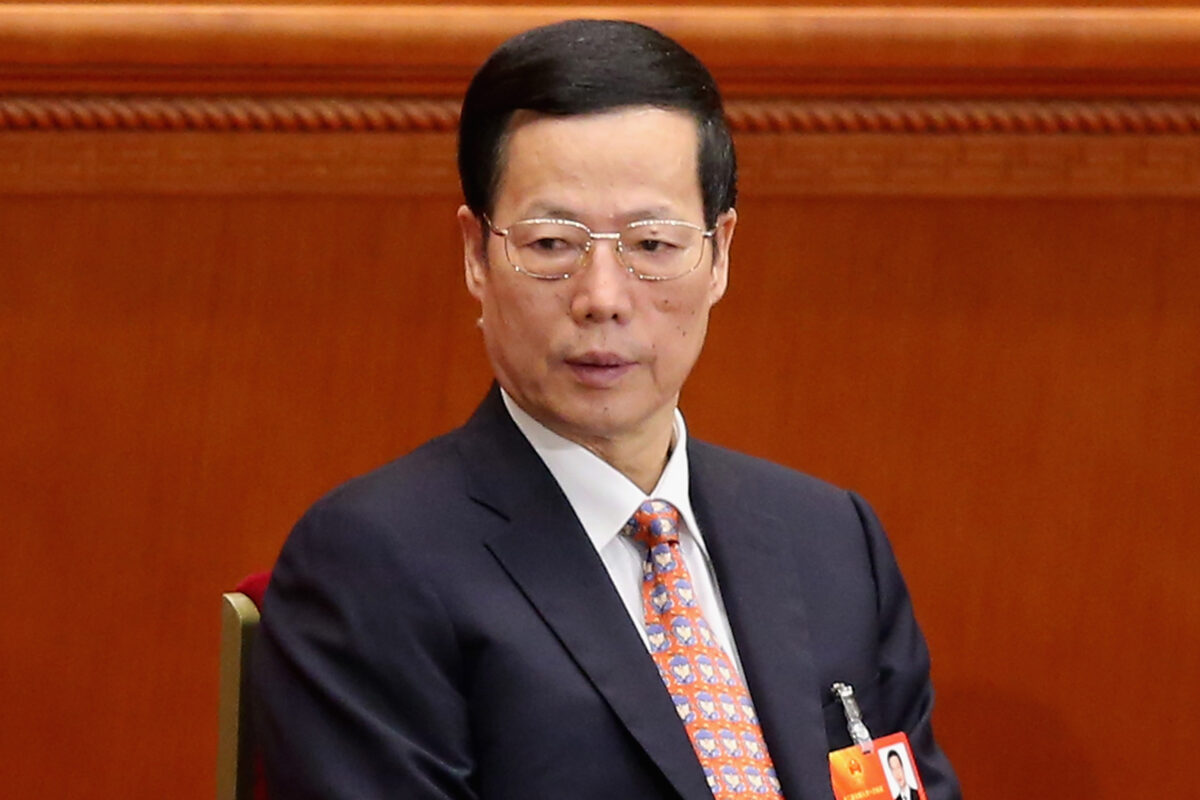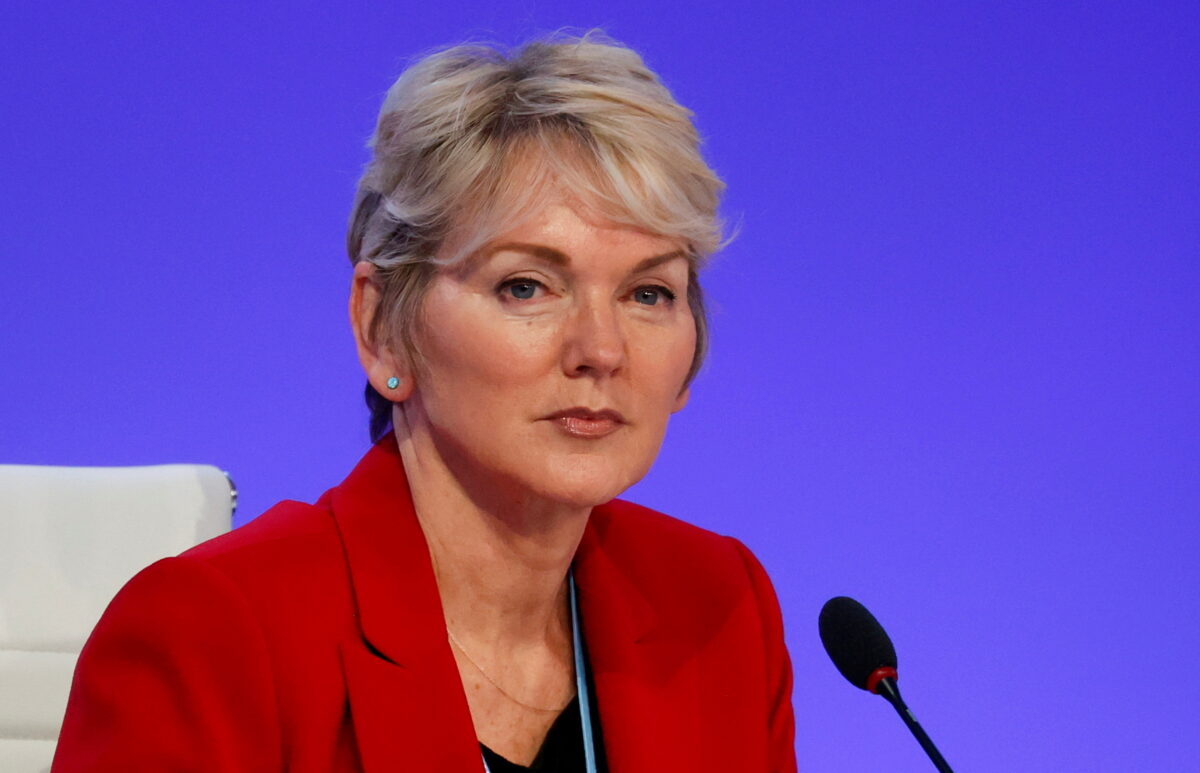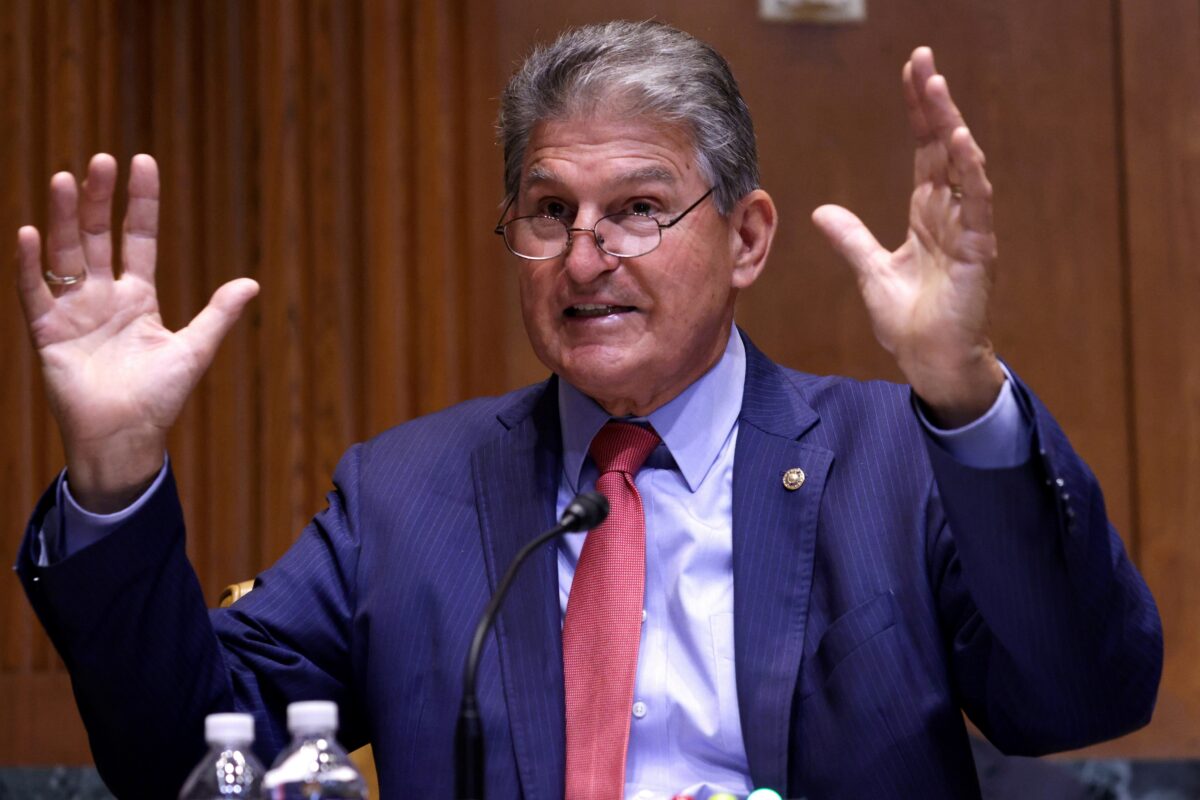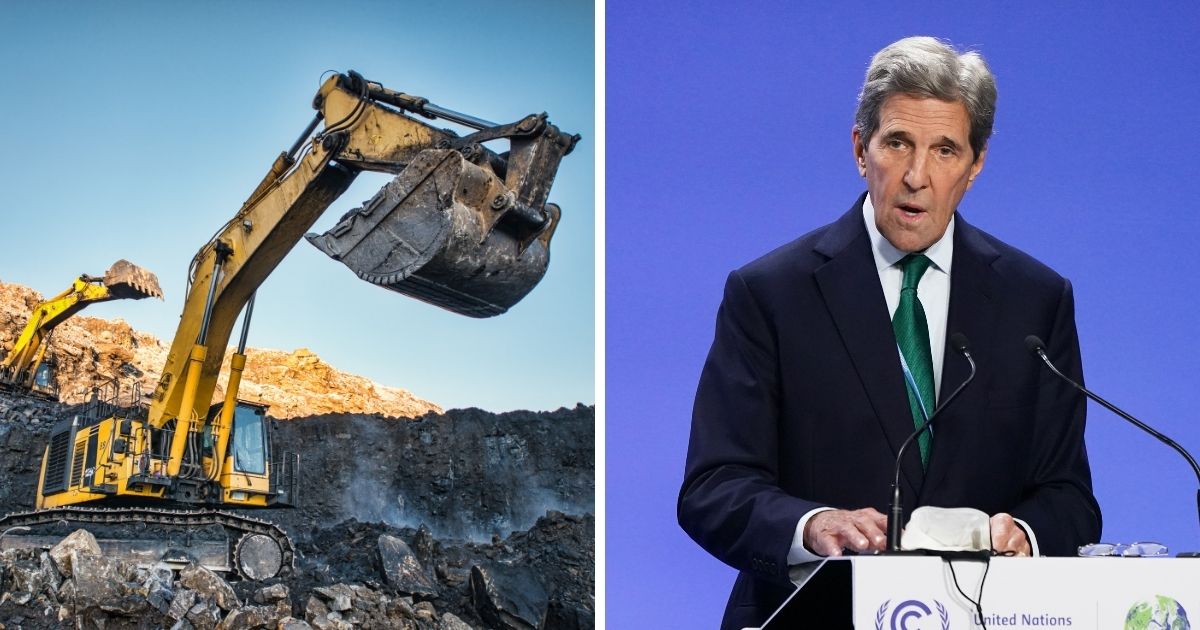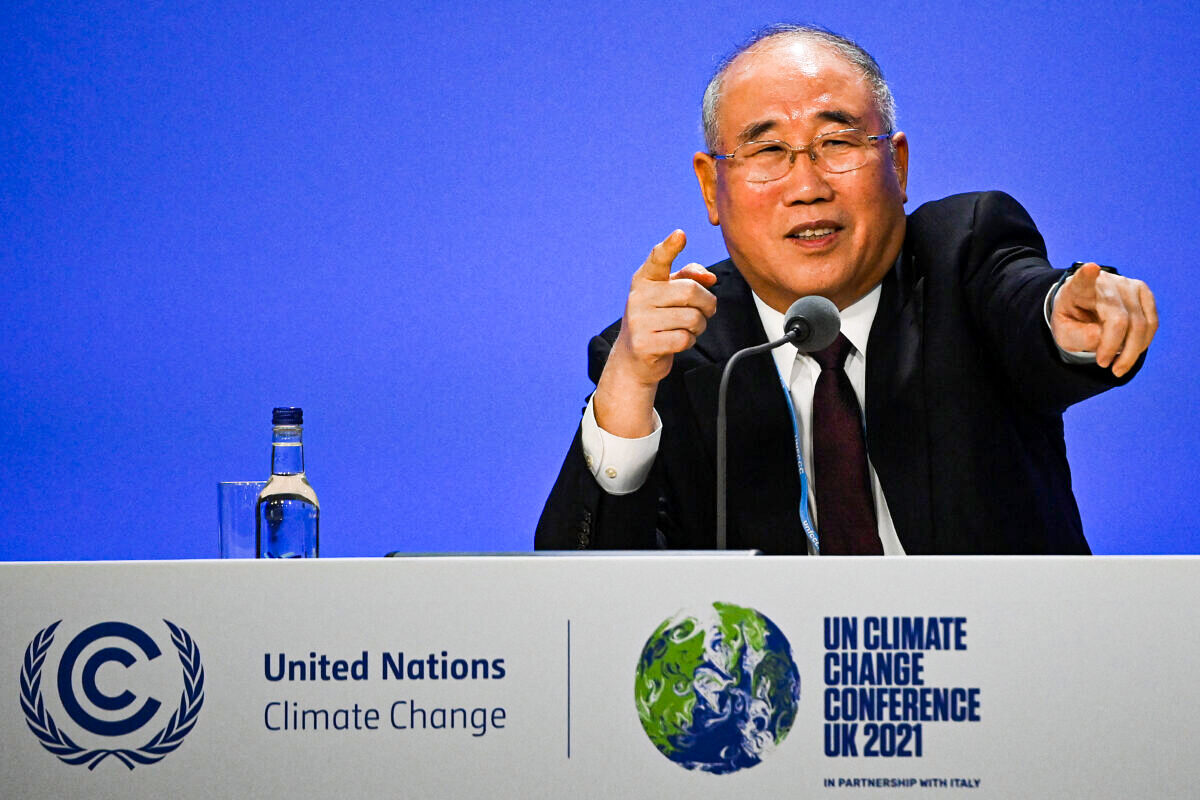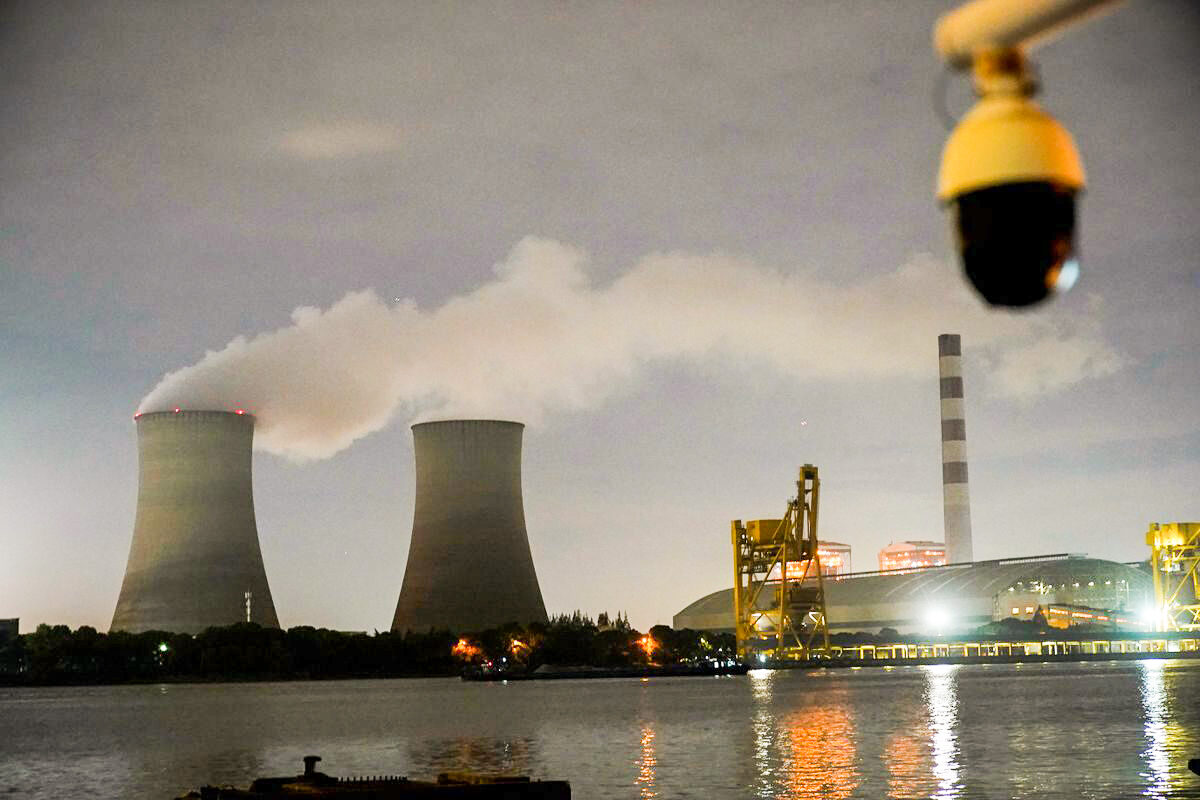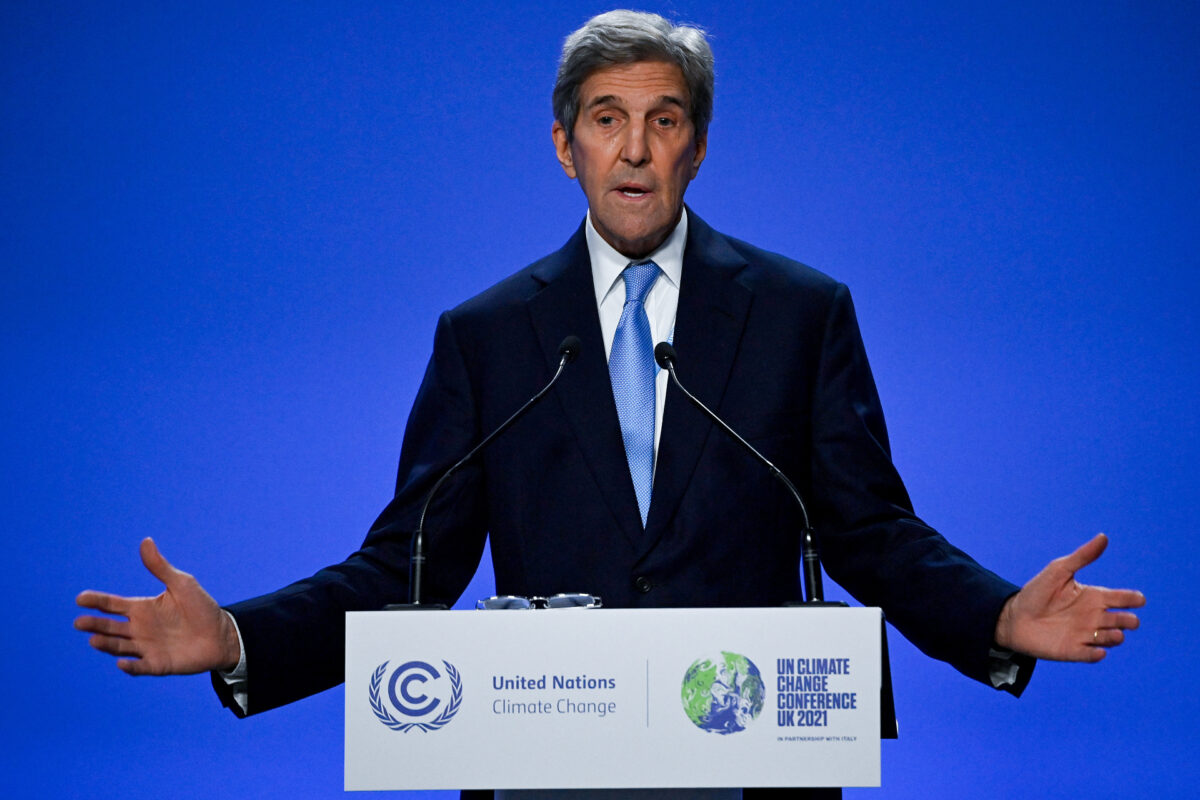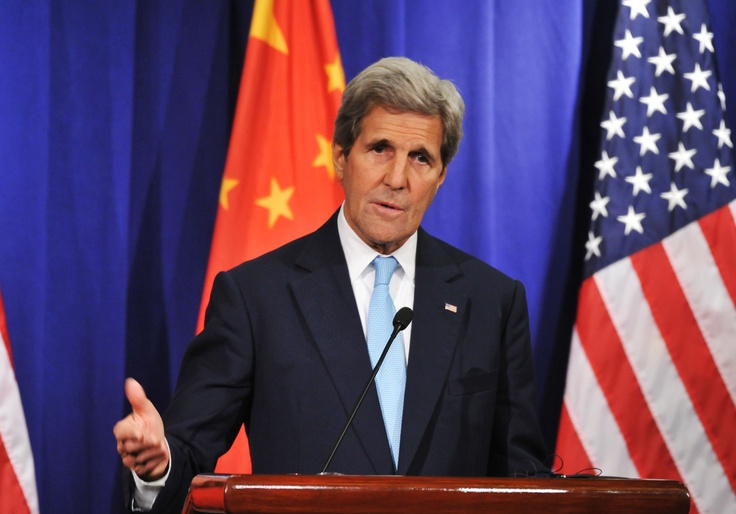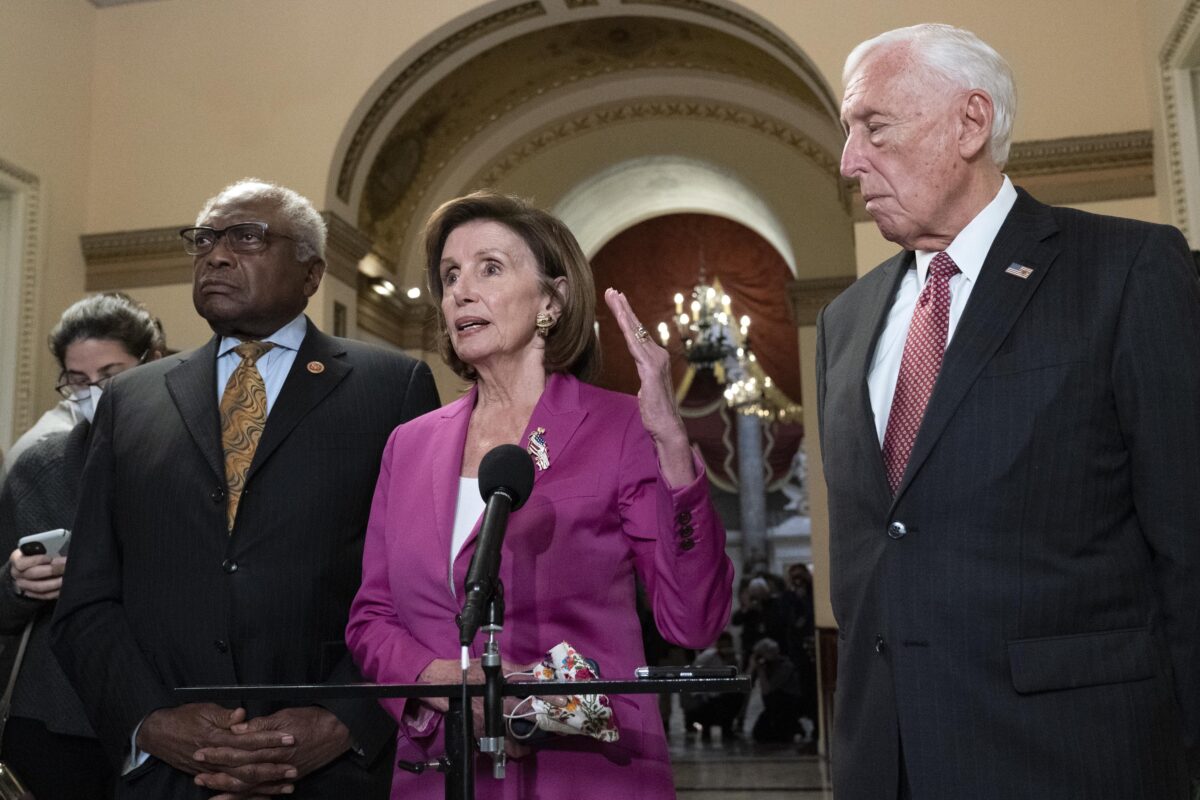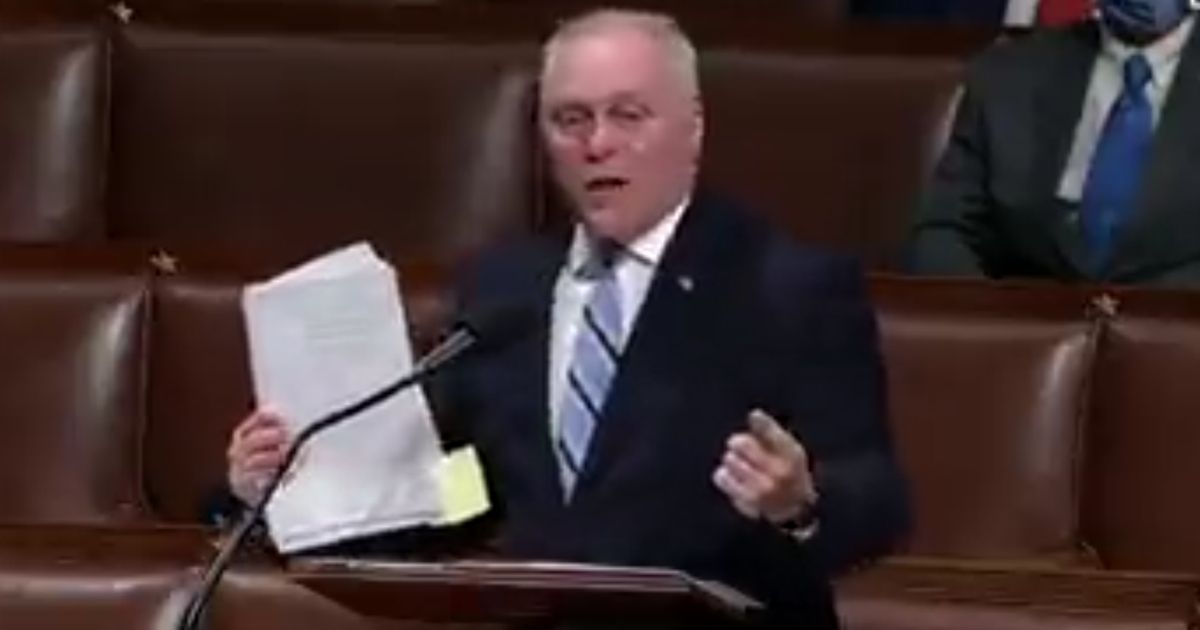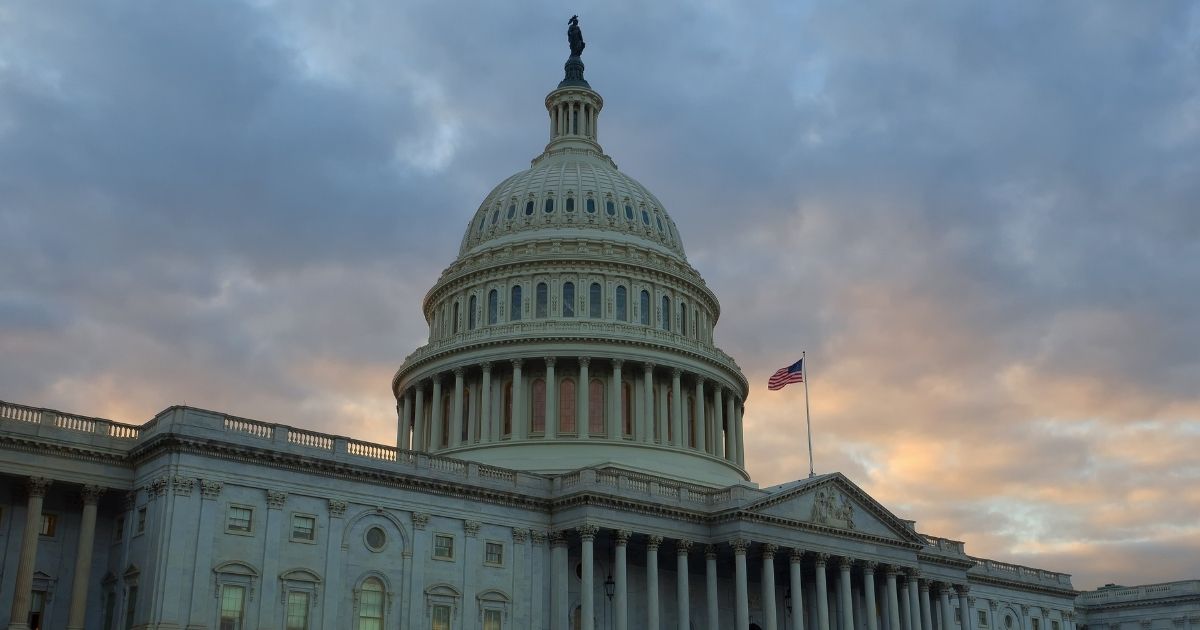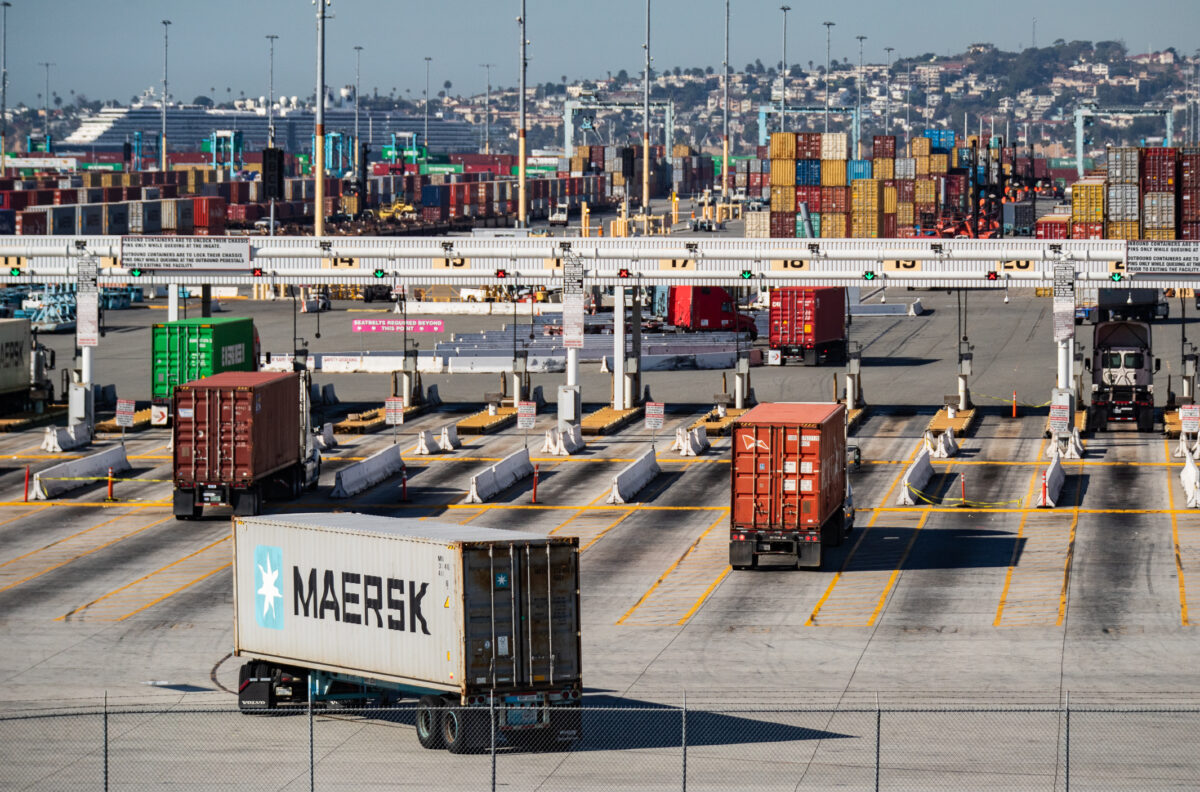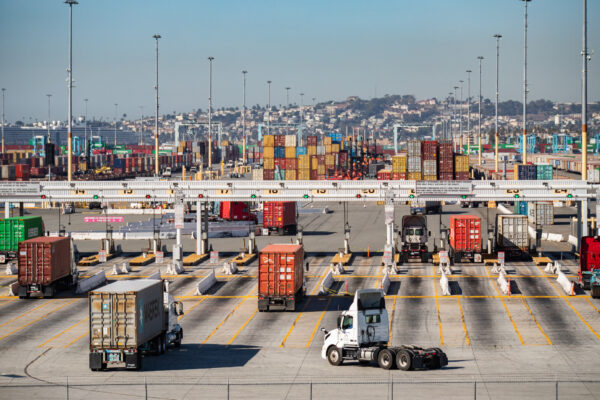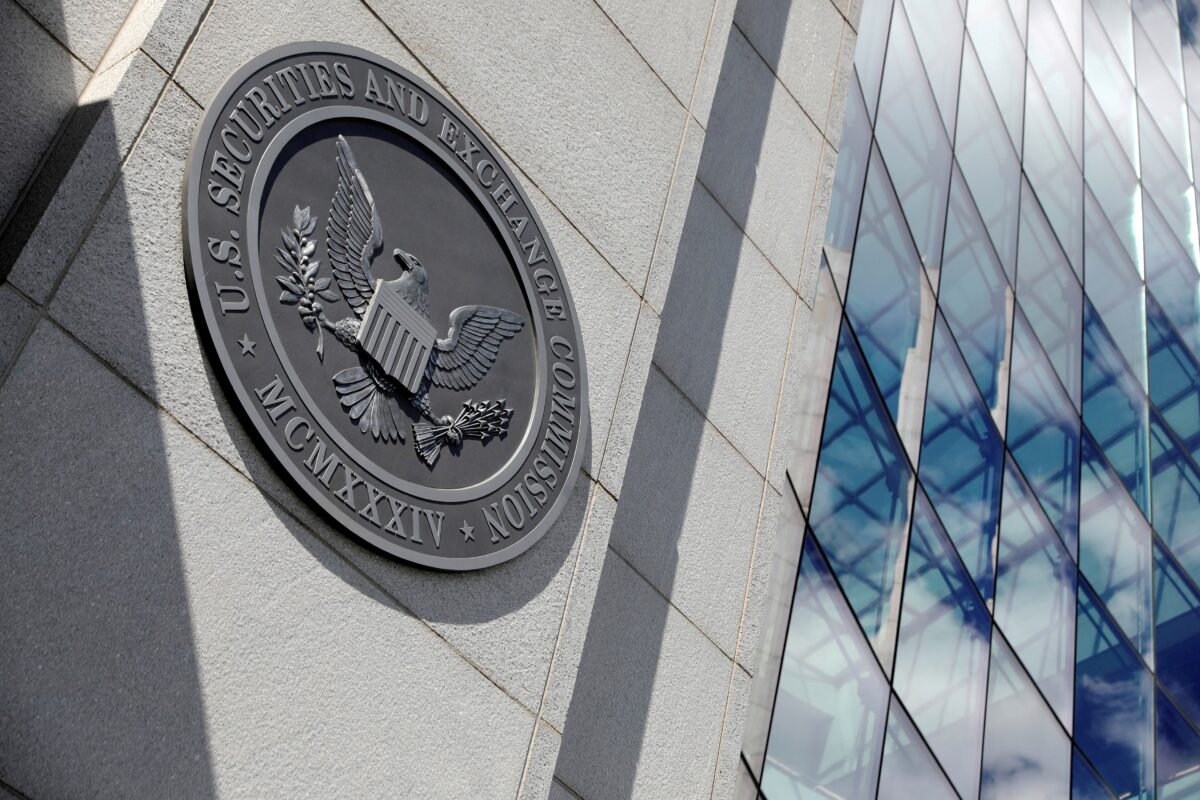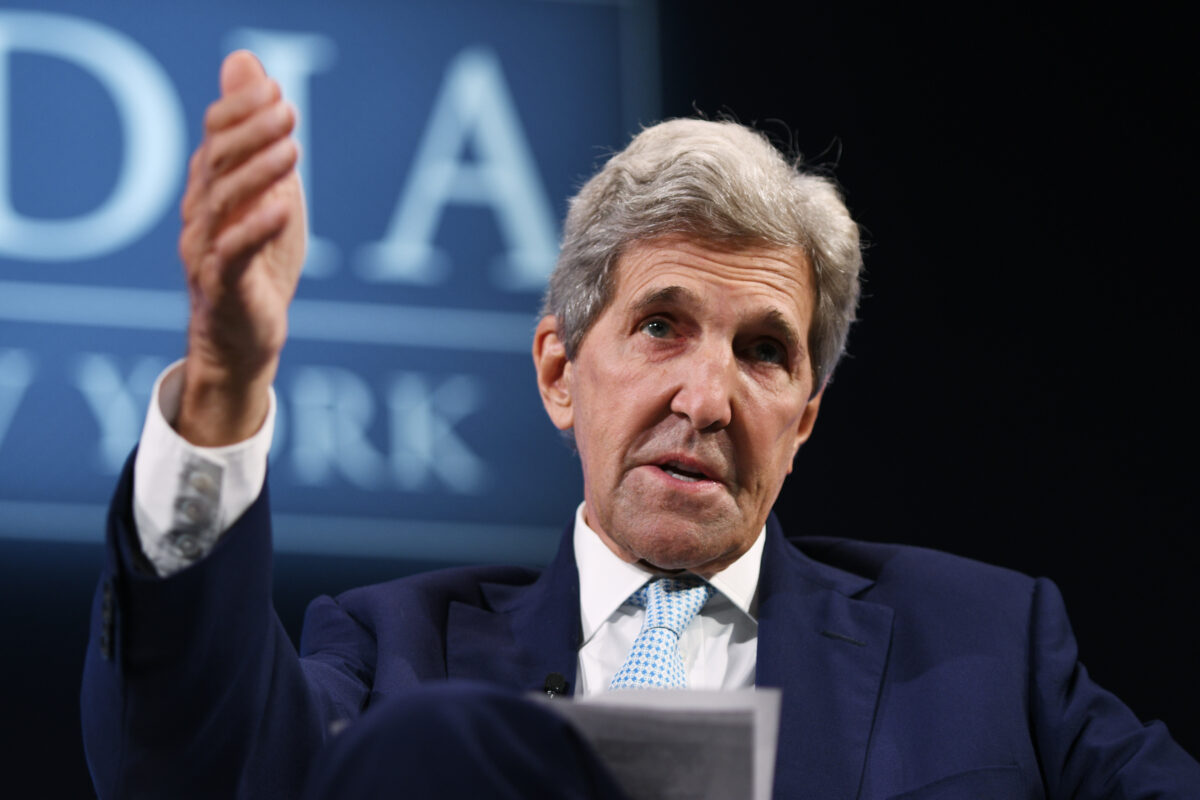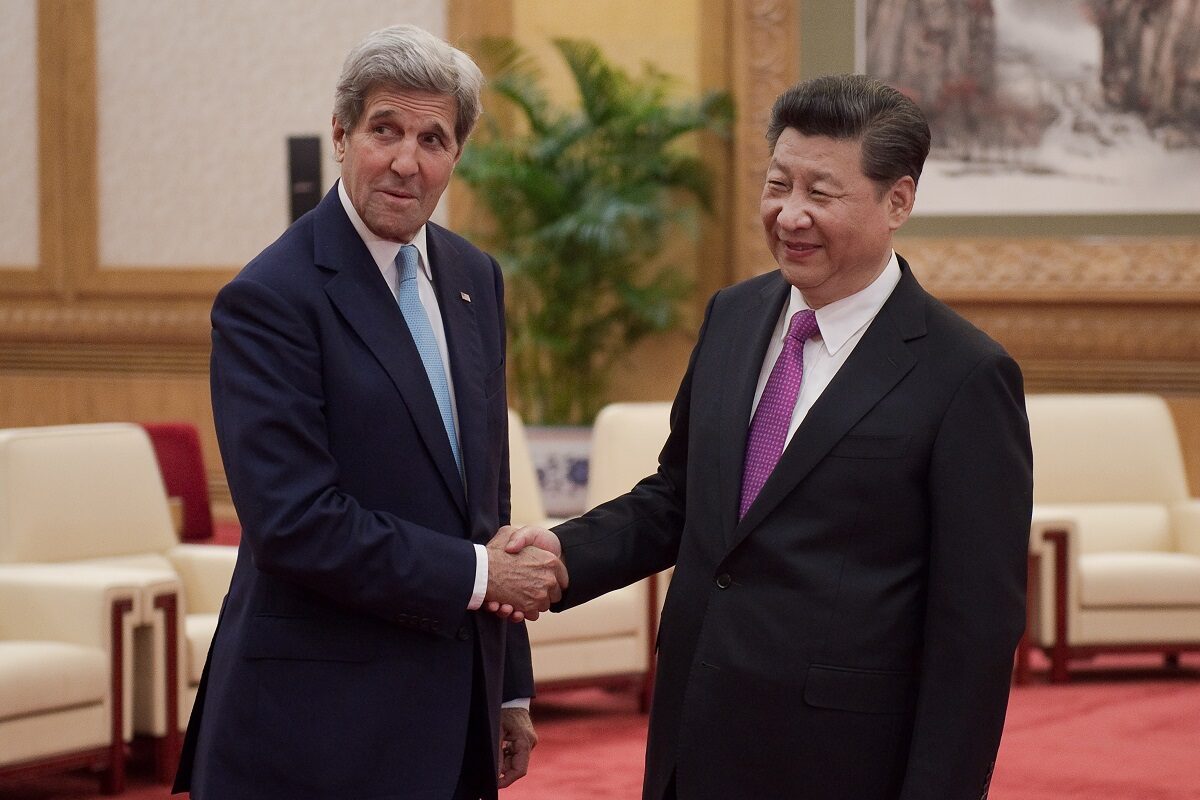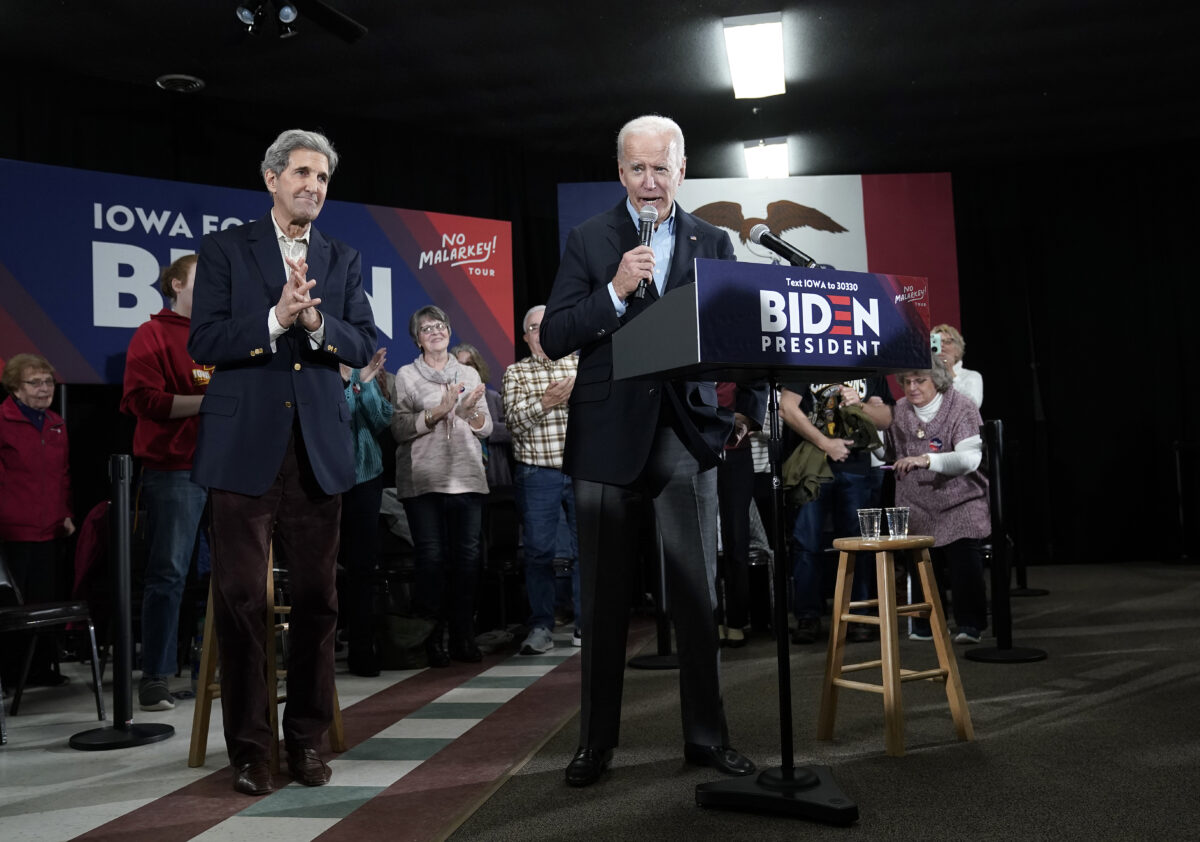Critics say the bill will slash economic growth and spur further inflation
I’m with the critics. Just because you have checks in your checkbook…and who in the hell thinks you can spend your way out of inflation? Oh yeah. I forgot. Mathematics is racist, so we can’t use it anymore. [US Patriot]
Despite Democrats’ claims that the Inflation Reduction Act (Destroy America Act) will ultimately serve to reduce consumer prices and spur economic growth, experts remain divided, with some predicting that the bill will worsen inflation and lead to stagnation in growth.
The bill, hammered out as a compromise agreement between moderate Sen. Joe Manchin (D-W.Va.) and Senate Majority Leader Chuck Schumer (D-N.Y.), serves to fulfill a series of broad Democrat aspirations: increasing federal revenue by closing so-called tax “loopholes,” climate change policies, expansion of the Affordable Care Act, commonly known as “Obamacare,” and reducing prescription drug prices.
The act, according to its supporters, will also help to slow the growth of the ballooning U.S. national debt by decreasing the deficit.
Though it authorizes around $433 billion in new spending, Democrats’ internal estimates suggest that the bill will bring in around $725 billion in new revenue to the federal government, thus reducing the federal deficit and slowing the growth of national debt. Specifically, Democrats estimate that the bill will reduce the deficit by around $292 billion annually.
Joe Biden issued a statement on July 27 expressing support for the new proposal, which he called “the action the American people have been waiting for.”
“This addresses the problems of today—high health-care costs and overall inflation—as well as investments in our energy security for the future,” Biden said.
IRS to Receive $80 Billion for Stricter Tax Code Enforcement
Proponents of the measure hope to offset the cost of new spending in the bill by altering the tax code, which would then be enforced by a substantially bulked-up Internal Revenue Service (IRS), which is set to gain around $80 billion through the package.
Among other provisions, the bill would impose a new 15 percent minimum tax rate on all corporations that bring in more than $1 billion per year. Though the current corporate tax rate is technically 21 percent, Democrats say that the new minimum tax rate will target large corporations who pay substantially less than 21 percent by using loopholes.
This change, Democrats estimated in a one-page summary of the bill, will bring in an additional $313 billion annually for the federal government.
Proponents of the bill suggest that, in addition to the new tax code changes, a bulkier IRS will bring in an additional $124 billion annually through the enforcement of the package’s tax code reforms.
Broken down, the roughly $80 billion appropriation to the IRS will go toward “necessary expenses for tax enforcement activities … to determine and collect owed taxes, to provide legal and litigation support, to conduct criminal investigations (including investigative technology), to provide digital asset monitoring and compliance activities, to enforce criminal statutes related to violations of internal revenue laws and other financial crimes … and to provide other services.”
In addition, the funds would go to hire tens of thousands of new IRS agents to further aid enforcement of the new tax rules—which likely will mean far more audits across the board.
Unsurprisingly, the effort to expand the IRS is not popular with Republicans, who have generally opposed such efforts in the past.
“Democrats are scheming to double the size of the IRS by hiring an army of 87,000 new agents to spy on Americans,” wrote House Minority Leader Kevin McCarthy (R-Calif.) in an Aug. 4 tweet.
In their one-page summary of the bill, Democrats insisted that the tax code changes would have no effect on families making less than $400,000 annually, a position carried over from the original effort to pass the Build Back Better Act (BBB).
“There are no new taxes on families making $400,000 or less and no new taxes on small businesses—we are closing tax loopholes and enforcing the tax code,” the summary says.
Some critics have expressed doubt about this claim, however, noting that the increased scope and funding of the IRS will affect people across income levels, including some individuals and small businesses making less than $400,000.
Prescription Drug Pricing Changes
Further helping to cushion the cost of the bill, Democrats say, are new provisions designed to lower the amount that the federal government pays for Medicare recipients’ drugs.
Currently, Medicare is not allowed to negotiate the price of prescription drugs with pharmaceutical companies, in contrast to private insurers who do have such power. Under the Inflation Reduction Act, Medicare will be authorized to begin such negotiations on the cost of 10 “high-spend” drugs, beginning in 2026.
In addition, the bill would cap out-of-pocket costs for Medicare beneficiaries, who are largely senior citizens, to $2,000 per year, or around $150 per month.
These changes, Democrats claim in their summary of the bill, will bring in an additional $288 billion in revenue to the federal government.
However, critics have questioned the focus on prescription drug pricing, noting that spending on pharmaceuticals only comprises around 15 percent of Medicare spending. Topping the list of Medicare expenditures are things like hospital inpatient care.
Further, the bill contains provisions designed to lower Americans’ premiums under the Affordable Care Act.
New Climate Policies, Spending
Since the failure of the BBB in December, Democrats have remained as desperate as ever to make wide-reaching changes to climate policy, and the Inflation Reduction Act would create a series of new programs and appropriations to that end.
The top line price of the climate policies in the bill comes out to around $369 billion.
Among other elements, the Inflation Reduction Act emphasizes tax incentives for companies and individuals who switch to renewable energy sources.
For instance, the bill would dole out as much as $28,500 in tax incentives to American households who buy more energy-efficient electric home appliances, install solar panels on their homes, and buy new electric vehicles. Though households would need to do all of these to come close to that $28,500 figure, it represents one of the largest government climate incentives ever put forward for individual households.
According to a study by Rewiring America, families who take advantage of all of these programs could see energy savings of as much as $1,800 per year.
Proponents of the bill have also pointed to an Energy Innovation study that suggests that by 2030, the Inflation Reduction Act’s climate incentives could create as many as 1.5 million new jobs.
Also, front-and-center for Democrats in the bill is its potential effect on reducing U.S. carbon emissions.
During negotiations on the bill, Manchin insisted on including several provisions designed to help the energy sector in West Virginia—which is dominated by coal mining.
In addition, the bill would require the reinstatement of three oil and natural gas leases that were halted by the White House near the beginning of Biden’s term. Solar and wind project permits on federal lands would also only be permitted if these oil and natural gas leases are retained.
Nevertheless, a key focus for Democrats was to de-incentivize fossil fuels as much as practicable.
Just as the bill would incentivize individual households to switch to renewable and efficient energy sources, corporations also stand to gain tax incentives, loans, and grants to do the same on a larger scale.
Proponents of the bill have cited various analyses suggesting that these policies would cause a net reduction in U.S. emissions of somewhere around 40 percent over their 2005 levels.
Democrats supporting the bill have said that the effects of pro-fossil fuel provisions in the bill—which angered environmentalists—would ultimately have a negligible effect on emissions. Proponents say that for every additional ton of greenhouse gas emissions in the bill, 24 tons of emissions would be cut.
This section comprises by far the largest chunk of spending in the new bill, and critics have pointed to it with concerns that it will reduce U.S. energy competitiveness and have suggested that the new spending may serve to worsen inflation.
Some Experts Applaud Bill as Much Needed, Anti-Inflationary
Marc Goldwein, senior director of policy at the Committee for a Responsible Federal Budget, applauded the bill during an appearance on Yahoo news.
At the beginning of the segment, Goldwein was asked what effect the bill will have on inflation.
“Look, this bill is not gonna get us from nine percent inflation down to the two or three percent it should be,” Goldwein said. “What this bill does is it’s gonna make the Federal Reserve’s job just a little bit easier, so they can fight inflation with fiscal policy moving in the same direction, not the opposite direction.”
Later in the interview, Goldwein reaffirmed this position: “No matter how you look at this bill, it’s gonna be good for inflation.”
“Macro-economically, it’s gonna take some excess money out of the economy, which we need when demand is so overheated, [and] it’s also gonna lower drug prices.
“Micro-economically, it’s gonna reduce the sticker prices that people and businesses see for energy, updates to their homes, for health care, for drugs—and all of that is gonna hopefully feed the inflation expectations.
“I don’t expect the effect to be large, but the direction is pretty clear and it’s gonna help to make the Fed’s job easier.”
However, Goldwein emphasized that, despite Democrats’ hopes that the bill will aid their dismal outlook for the midterms later this year, Americans won’t see any real effect on inflation in calendar year 2022.
“Really this is a 2023, 2024, 2025 game,” Goldwein said. “What this is supposed to do is stop inflation from persisting over the long term—again, make the Fed’s job a little bit easier. It’s not gonna provide relief next month, and we shouldn’t expect that.”
Asked about the implications of the bill on the federal deficit, Goldwein affirmed Democrats’ claims that through the new 15 percent minimum tax and expansion of the IRS, the bill would greatly increase revenue and reduce the deficit by about $300 billion, which, Goldwein noted, is “the largest deficit reduction since 2011.”
Over two decades or so, Goldwein added, that comes out to around $1.5 trillion spared from being added to the national debt.
“That’s not gonna fix our debt just like this isn’t gonna fix inflation,” Goldwein admitted, “but it’s gonna help with our debt, just like this is gonna help with inflation.”
Republican and conservative critics of the bill have argued that through the new corporate taxes, capital investment will diminish, slowing the growth of the economy.
This, Goldwein acknowledged, is true. But, he said, limiting growth is exactly what the economy needs right now.
“The reality right now is that the economy is overheated,” Goldwein said. “We have too much money chasing too few goods. … There’s a lot more we can do. But this is a piece of the puzzle. This is gonna help make it a little bit easier for the Fed to get inflation under control.”
Larry Summers, an inflation expert and former Treasury Secretary often quoted by Senate Minority Leader Mitch McConnell (R-Ky.), shared Goldwein’s sanguine assessment of the bill.
“This bill is fighting inflation and it’s got a whole set of collateral benefits as well,” Summers said during an appearance on CNN. “It’s fair to call it the ‘Inflation Reduction Act.’”
Bill Will Shrink GDP, Cause Thousands of Lost Jobs: Tax Foundation
These sanguine assessments are far from universal, however. Several conservative and Republican-leaning experts and organizations have been critical in their analysis of the bill, which they have said would at best have a negligible effect on inflation while stagnating economic growth.
In its analysis of the bill the Tax Foundation, a tax information nonprofit, estimated that the bill “would reduce long-run economic output by about 0.1 percent and eliminate about 30,000 full-time equivalent jobs in the United States.”
Further, they estimated, “it would also reduce average after-tax incomes for taxpayers across every income quintile over the long run.”
“By reducing long-run economic growth, this bill may actually worsen inflation by constraining the productive capacity of the economy,” the group argued.
Later down their report, the Tax Foundation explained the claim, noting that while the bill would avoid some of the direct tax increases contained in the original iteration of the BBB, it would nevertheless have a pronounced effect on capital investment.
“While the latest proposal steers clear of some of the major tax rate increases contained in the House-passed Build Back Better Act, this proposal would raise taxes on work and investment, disincentivizing productive activity,” the organization wrote.
“The bill would increase long-run American incomes (as measured by gross national product, or GNP) by less than 0.05 percent, which is entirely driven by the bill’s reduction in the budget deficit over the long run. The bill would reduce the capital stock by about 0.3 percent and wages by about 0.1 percent, while eliminating about 30,000 full-time equivalent jobs.
“The proposed 15 percent minimum tax on corporate book income is the most economically damaging provision in the bill, reducing GDP by 0.1 percent and costing about 23,000 jobs. The tax increase on carried interest also eliminates about 5,000 jobs.”
Bill Will Disincentivize Capital Investment, Causing Long-Term Stagnation: Heritage Foundation Tax Expert
Preston Brashers, a senior tax policy analyst for the right-leaning Heritage Foundation, shared the Tax Foundation’s pessimistic appraisal in an interview with The Epoch Times.
Specifically, Brashers emphasized the negative effects that the new tax laws, including the new corporate minimum tax, will have on capital investment.
The problem, Brashers said, is the way that the bill would change the rules about determining whether a corporation meets the standard for the minimum tax.
Under the Inflation Reduction Act, corporations with an annual income of $1 billion or more will be subject to a 15 percent minimum tax. Though current tax law sets the corporate tax rate at 21 percent, many corporations ultimately pay less once write-offs, exemptions, and workarounds in the tax law are taken into account. Through the corporate minimum tax, Democrats hope to end these practices.
However, rather than using tax income—which takes into account exemptions and write-offs—to determine whether the minimum tax applies, the Democrats’ bill would use the “book income” to determine applicability.
The “book income,” reported under standards developed by the Financial Accounting Standards Board (FASB) and enforced by the Securities and Exchange Commission, is the figure handed to investors to show a company’s annual income before any taxes paid or written off are taken into account.
Under current rules, when corporations reinvest their income into the business—by purchasing things like new equipment, machinery, factories, and other types of capital—they are permitted to write the cost of such investments off as a matter of tax income.
Book income, on the other hand, does not take such expenses into account—it is simply a report of the net revenue a corporation brings in over an annual period.
“If I’m a business, and I buy some new machinery—put some new machinery in my factory—that expense, under the book income system, I wouldn’t be able to deduct that [from book income] right away,” Brashers explained.
“The whole point of book income is totally different from taxable income,” Brashers argued.
Because of this, the new corporate minimum tax is “a major disincentive for companies to invest. So what’s gonna happen then is they’re gonna invest less—there’s gonna be fewer factories.”
Brashers said that those hardest hit by these new rules will be manufacturers and other capital-intensive industries like mining, which, by the nature of their enterprises, necessarily have far more capital expenses if they hope to continue growing.
However, new and growing firms will also be hit hard, to the benefit of older and more established firms. Older firms often see dwindling opportunities for reinvestment, and instead opt to pay investors dividends while they run “on autopilot,” Brashers said. Newer and growing companies, on the other hand, often have many capital investment needs.
Thus, this bill will also serve to make it harder for new competitors to enter established markets.
Brashers said that the new rules will also muddy the waters around FASB-compliant financial statements in a way that may drive investors away from investing in U.S. companies. Because companies will have tax incentives to reduce their book income, Brashers explained, the figures investors see may be somewhat bleaker financially than the actual facts on the ground at the firm.
“What companies are gonna be doing for their financial statements is gonna be driven more by tax incentives—which is not a good thing,” Brashers said. “It’s gonna lead to investors having worse information about what’s going on with companies, because now [companies] have an incentive to reduce their financial statement income if it’s just gonna cause them to have this book minimum tax.”
In addition, Brashers predicted, basing these new tax rules on FASB financial statements could lead to a new genre of lobbyists who, instead of lobbying Washington lawmakers, lobby the FASB to encourage it to change its financial statement rules.
On an international scale, these changes could drive investors out of U.S. markets, Brashers suggested, to countries like China, where these rules are not in place.
Taking these things together, Brashers contended: “there’s gonna be fewer jobs, and the people who are working in those jobs are gonna have less capital around them—less tools, less equipment—which means that each worker [will be] less productive.” Workers producing less, in turn, will lead to lower wages and slowing wage growth—meaning that individual Americans will also be hit by the unintended consequences of the bill.
In summary, Brashers said: “This bill is exactly the wrong approach. We’re heading into a recession—and they wanna raise taxes; we’re dealing with inflation—and they want to add to the cost of doing things in this country. This approach is exactly wrong because rather than unfettering the economy and allowing businesses to produce and workers to work more and do more, we’re just making it harder.”
Bill on Track to Pass the Senate in Coming Days
Whatever the truth of the varied expert assessments of the bill, it now appears to have a straight shot through the Senate.
Because the Inflation Reduction Act uses the reconciliation process, it is exempt from the normal 60-vote filibuster threshold that kills most partisan bills in the Senate. Instead, only 51 votes are needed for the passage of a reconciliation bill.
Currently, Democrats hold just enough seats to pass the bill, including 50 Democrat senators and the tie-breaking vote of Vice President Kamala Harris.
In the past, Sens. Kyrsten Sinema (D-Ariz.) and Manchin, the two swing-voting members of the Democrats in the upper chamber, have been the largest threat to the passage of any overly ambitious reconciliation bill from their party. As soon as the agreement was unveiled by Manchin and Schumer, Manchin vowed his support for the legislation, leaving a question mark only on Sinema.
Despite some hopes among critics that Sinema would hold out against the bill, denying it of the 50 votes needed to activate Harris’ tie-breaking vote, her office announced late in the evening on Aug. 4 that Sinema had decided to back the bill.
The original draft of the bill would have closed the “carried interest loophole,” a tax code workaround that allows money managers to pay a lower tax rate than normal on profitable investments. This proposal, which was part of the original BBB plan, would have brought in another $14 billion in revenue, Democrats said.
As part of committing her support for the bill, Sinema demanded that this provision be removed, despite Manchin’s expressed demands that the provision remain in the bill. Democrat negotiators acceded to Sinema’s request, paving a way forward for the bill.
“We have agreed to remove the carried interest tax provision, protect advanced manufacturing, and boost our clean energy economy in the Senate’s budget reconciliation legislation,” Sinema said.
Only the approval of the Senate parliamentarian, a nonpartisan referee in the upper chamber whose go-ahead is necessary for reconciliation bills, remains left for the quick passage of the bill through the Senate.
Speaker of the House Nancy Pelosi (D-Calif.) has expressed support for the bill, and it is likely that the House will take up and pass the bill following its passage in the Senate.
Biden, likewise, is likely to sign it upon its approval by both chambers of Congress.
Source: The Epoch Times
